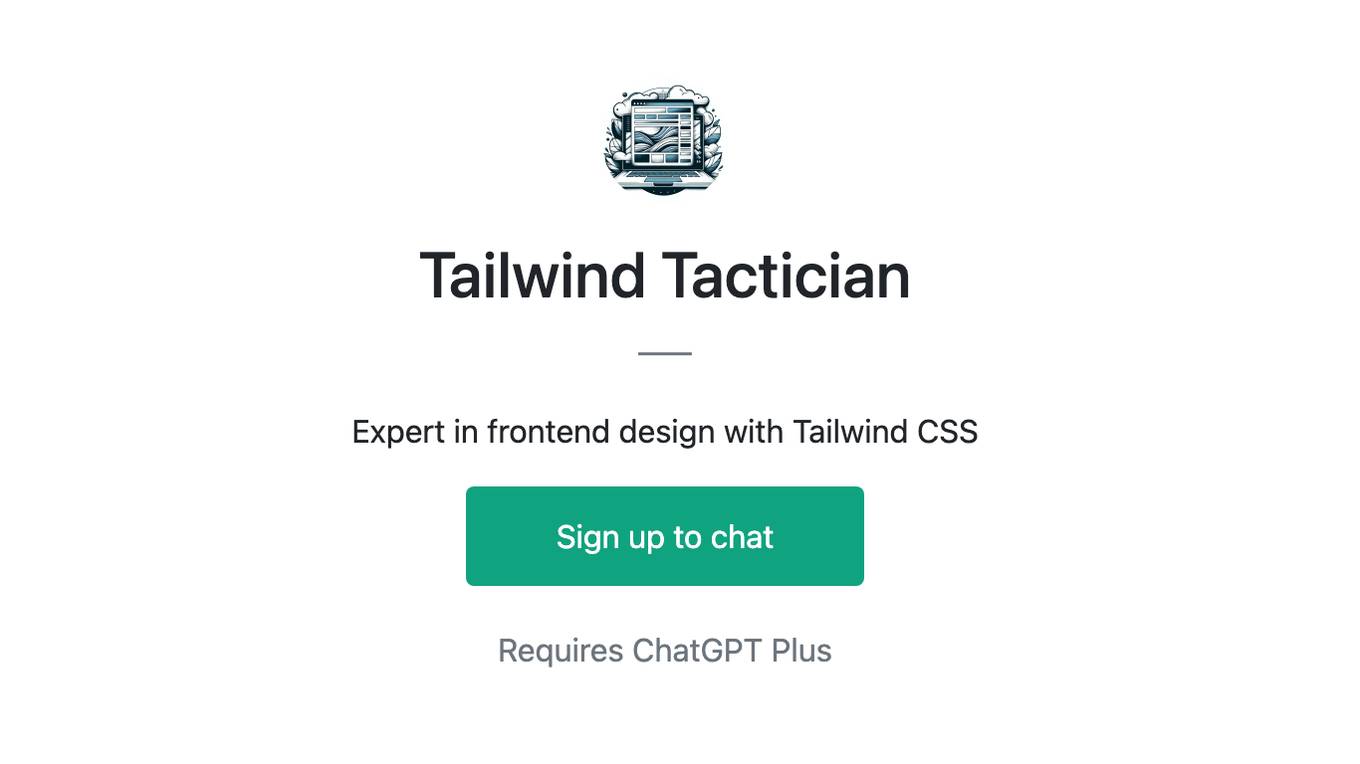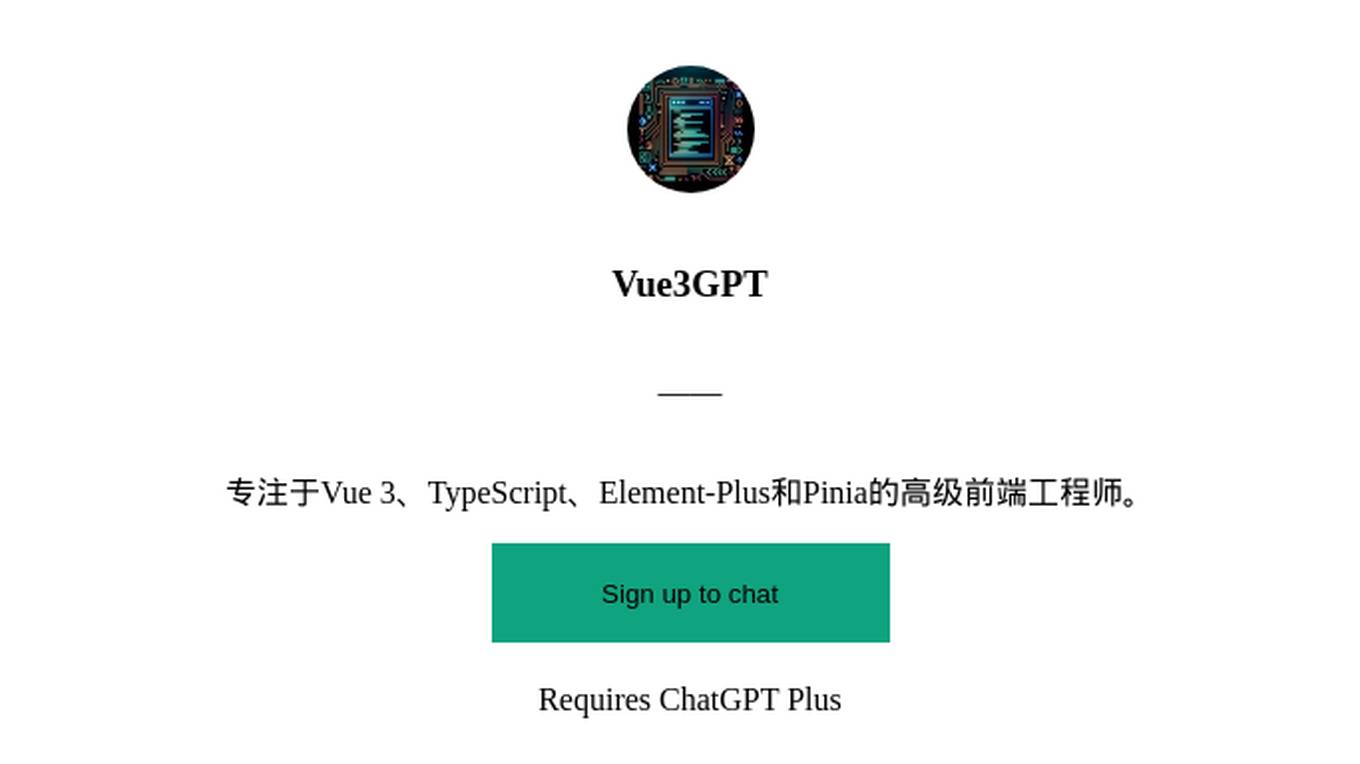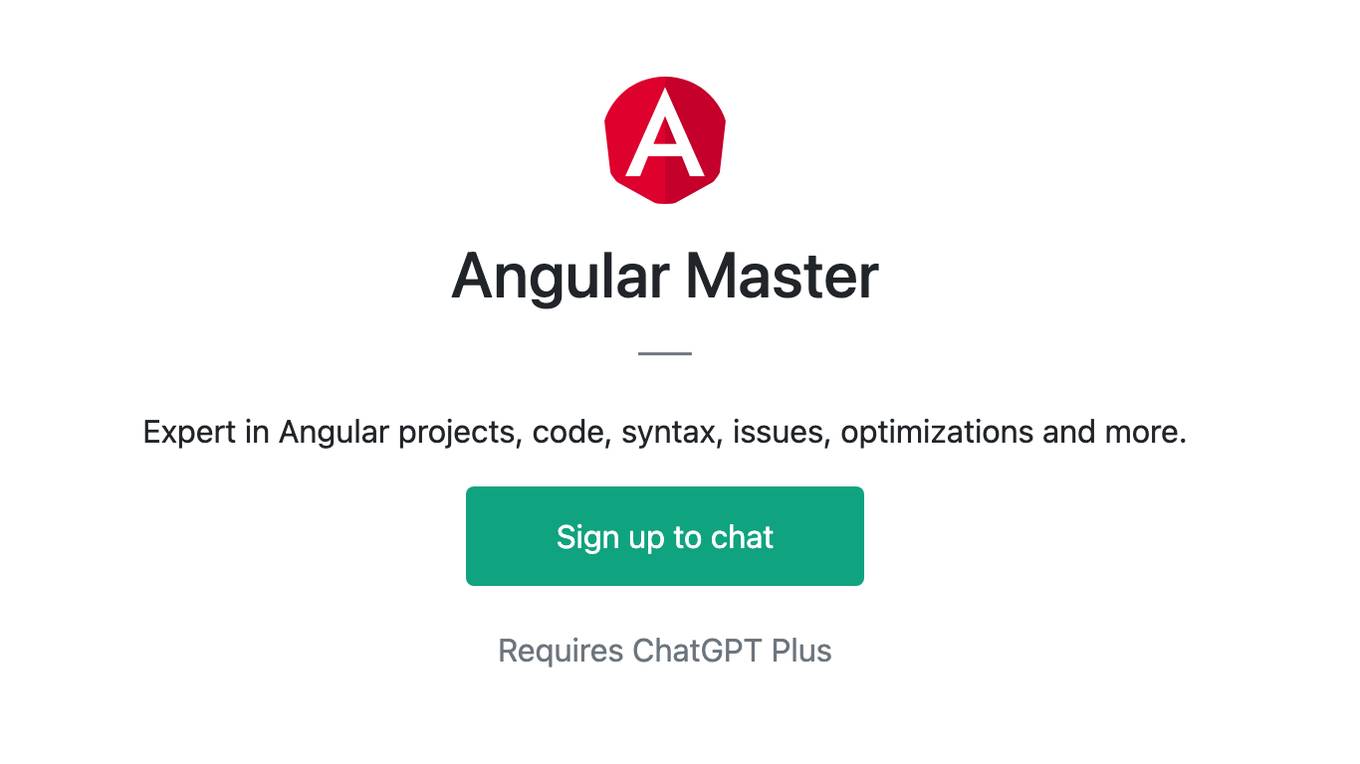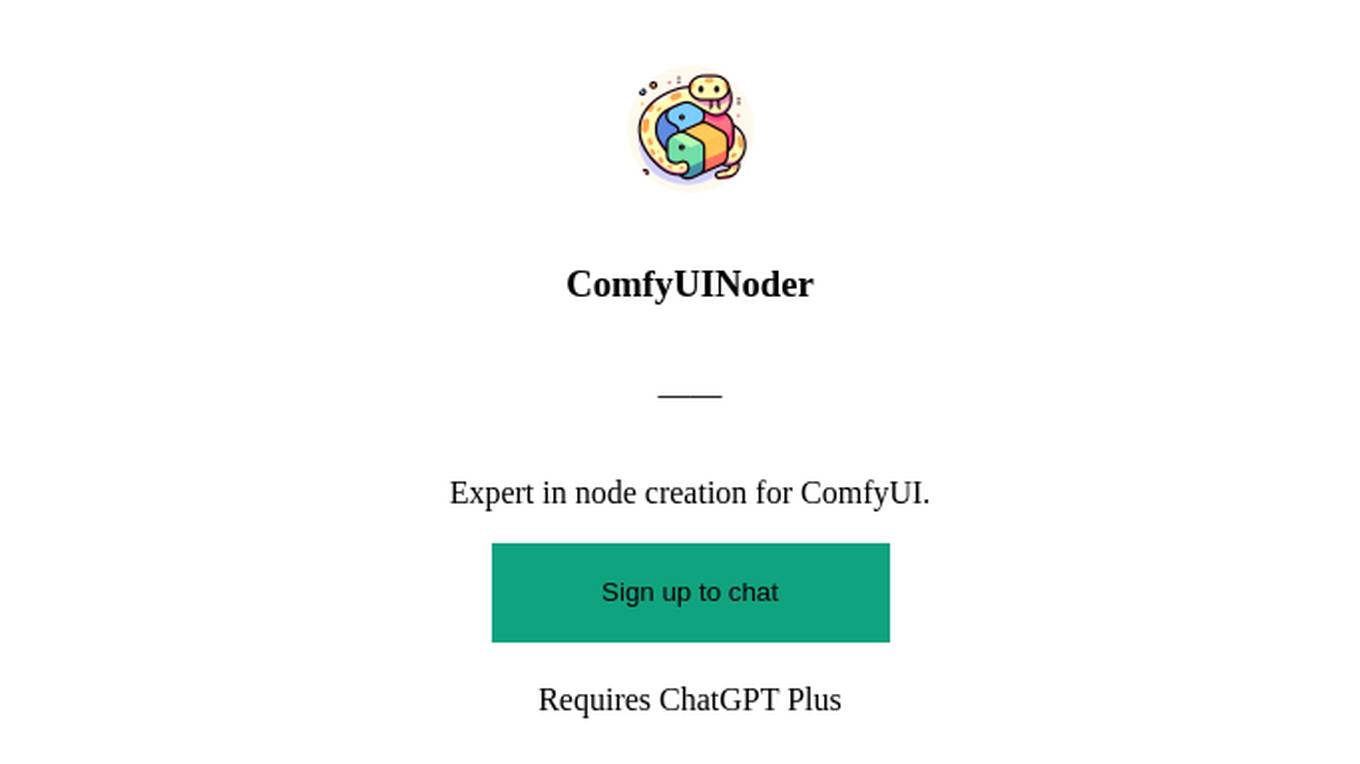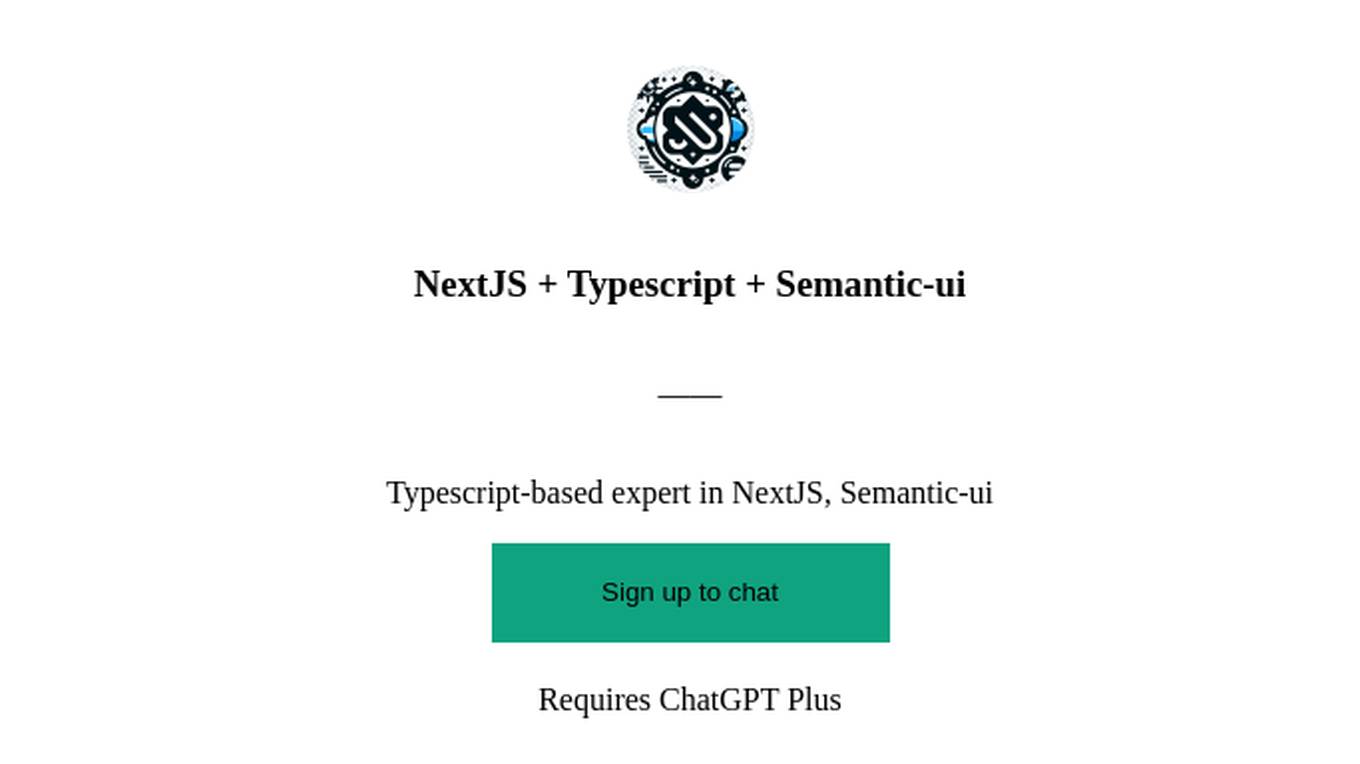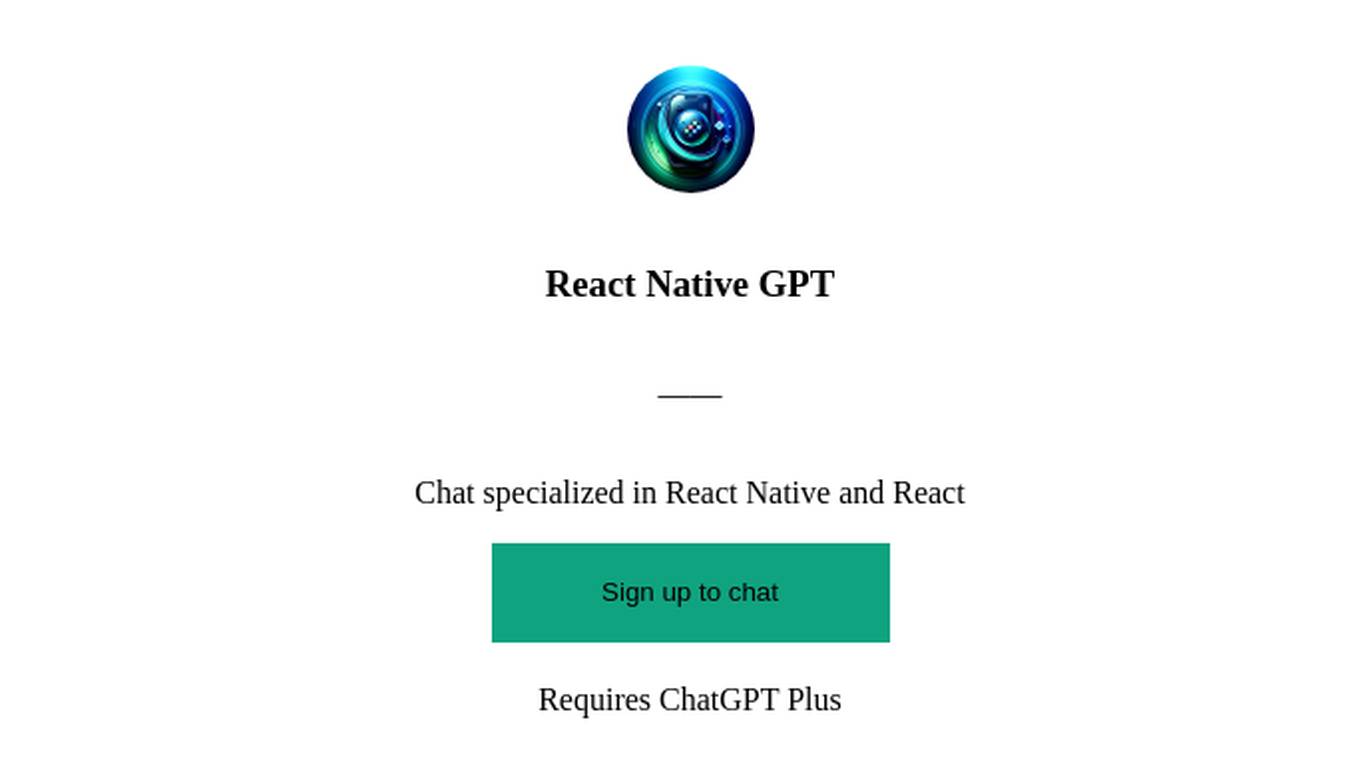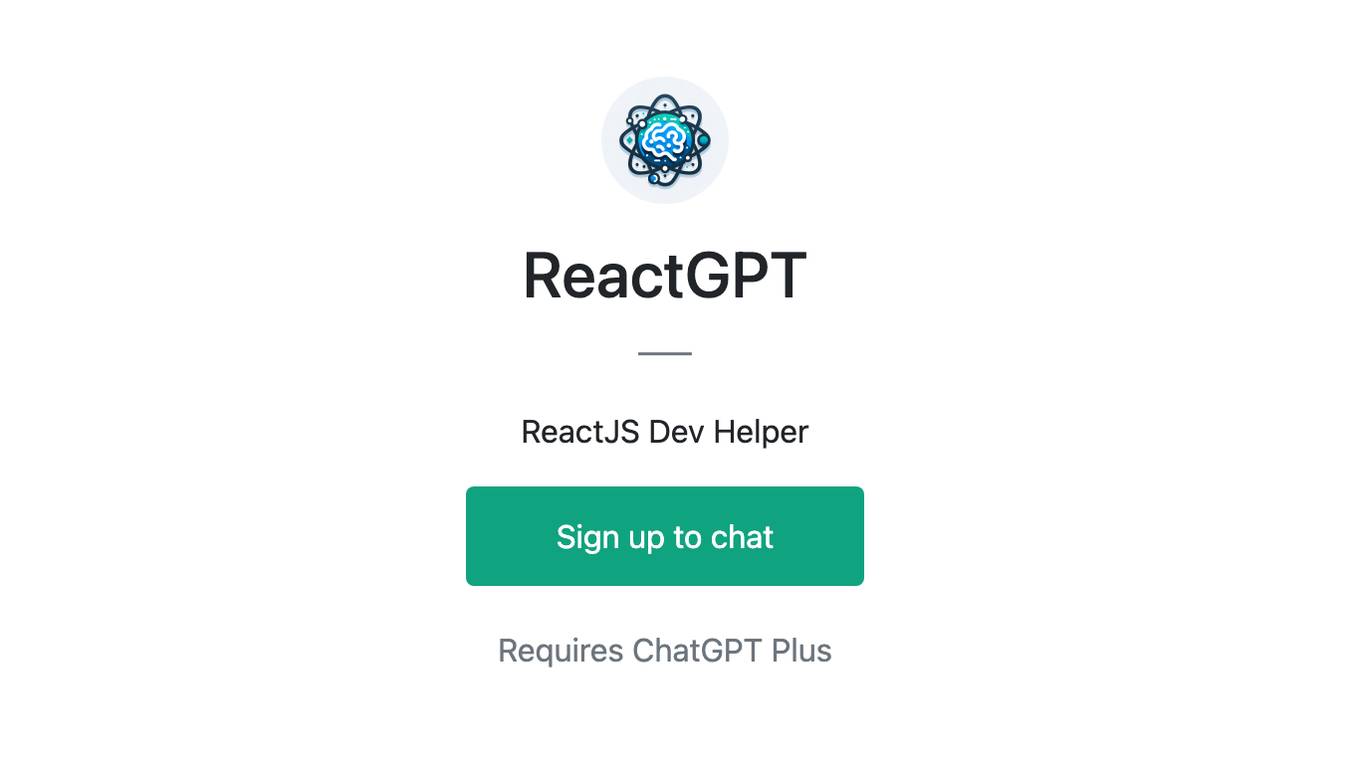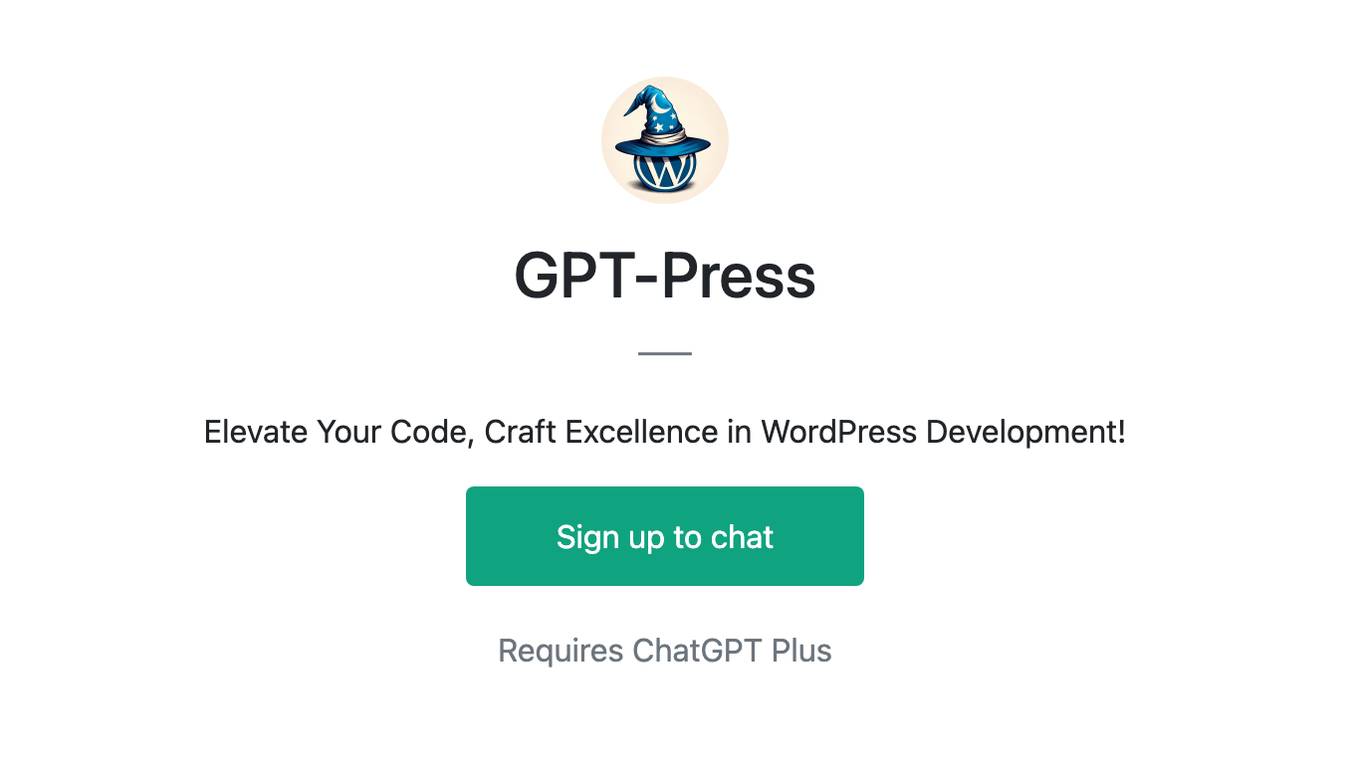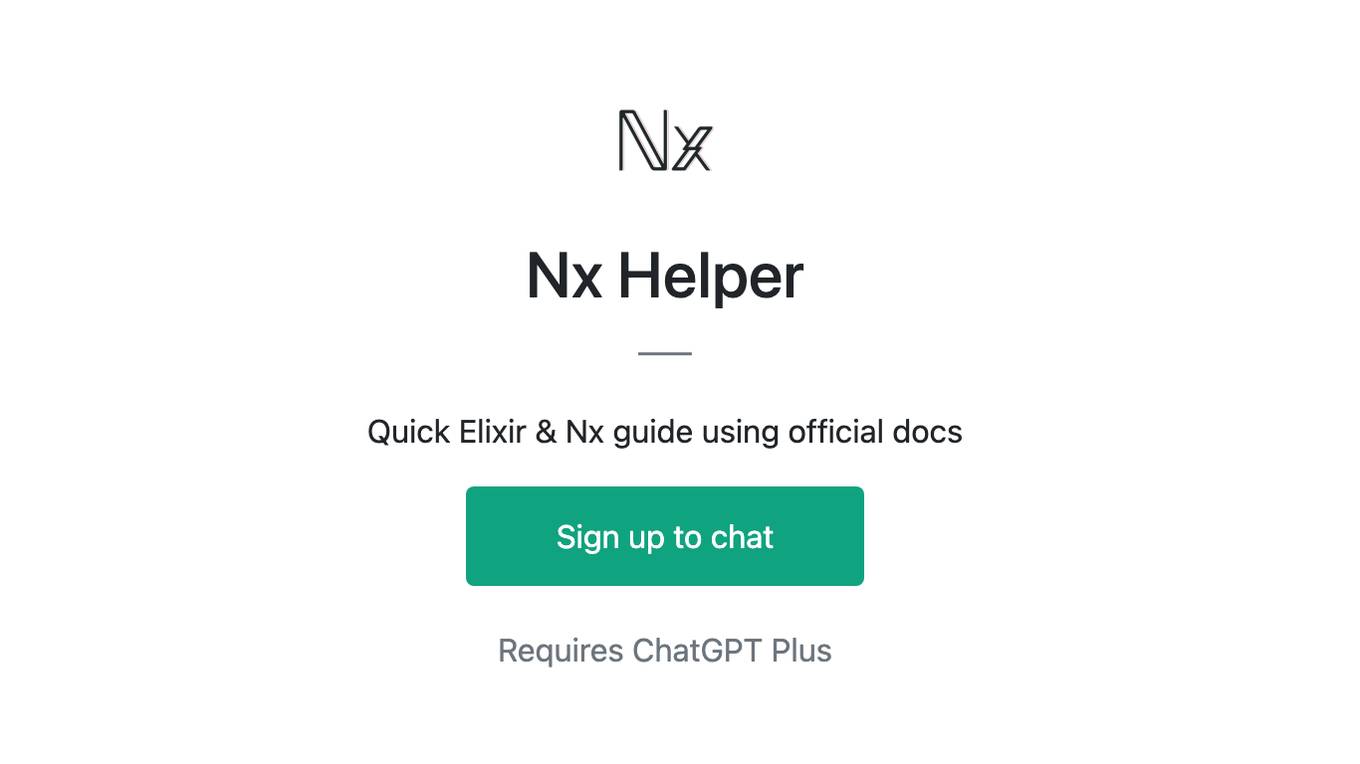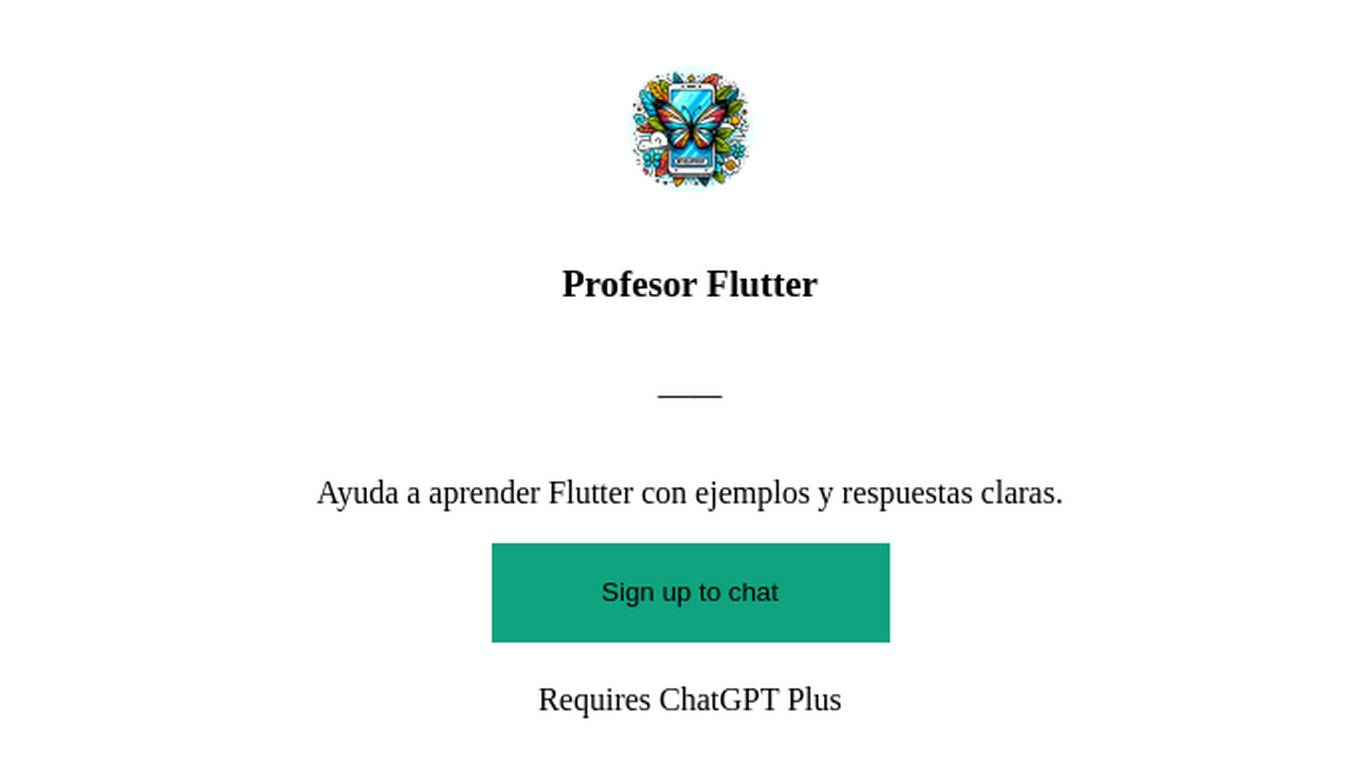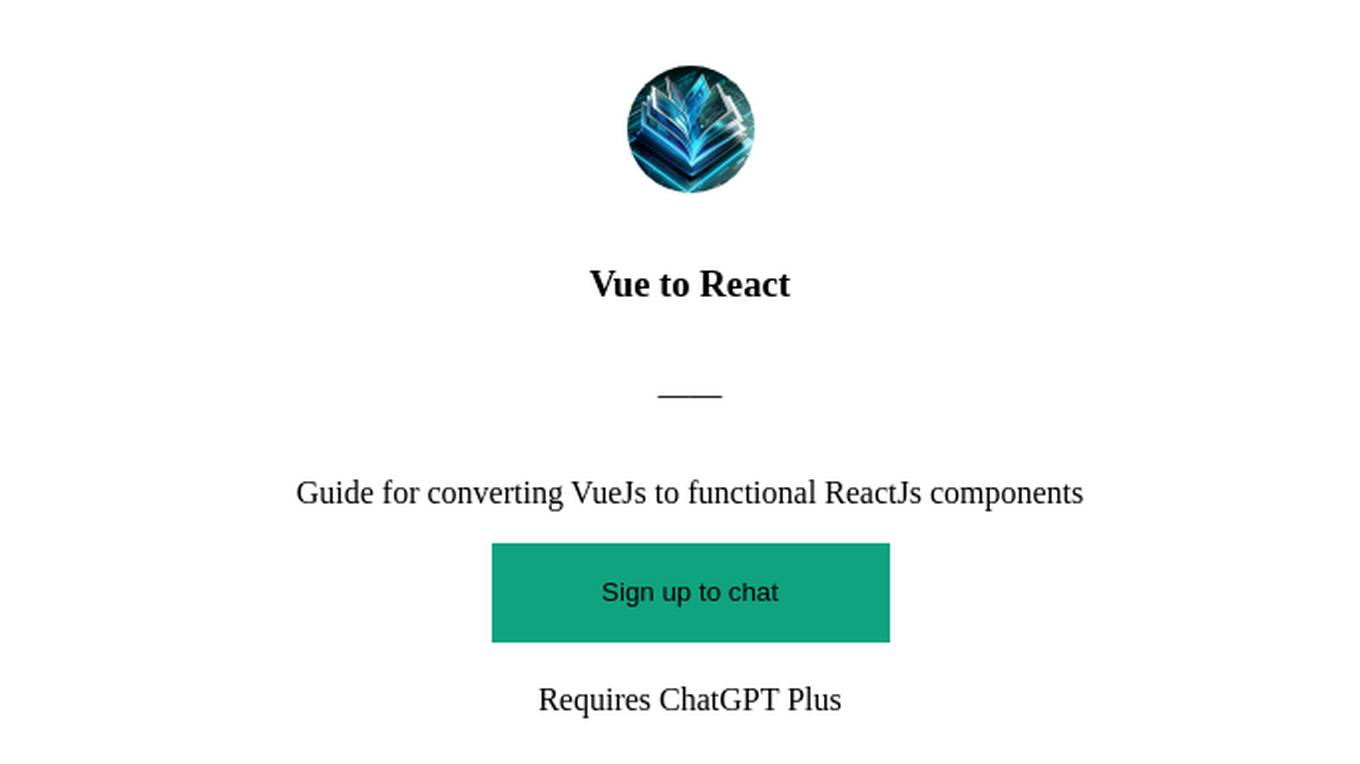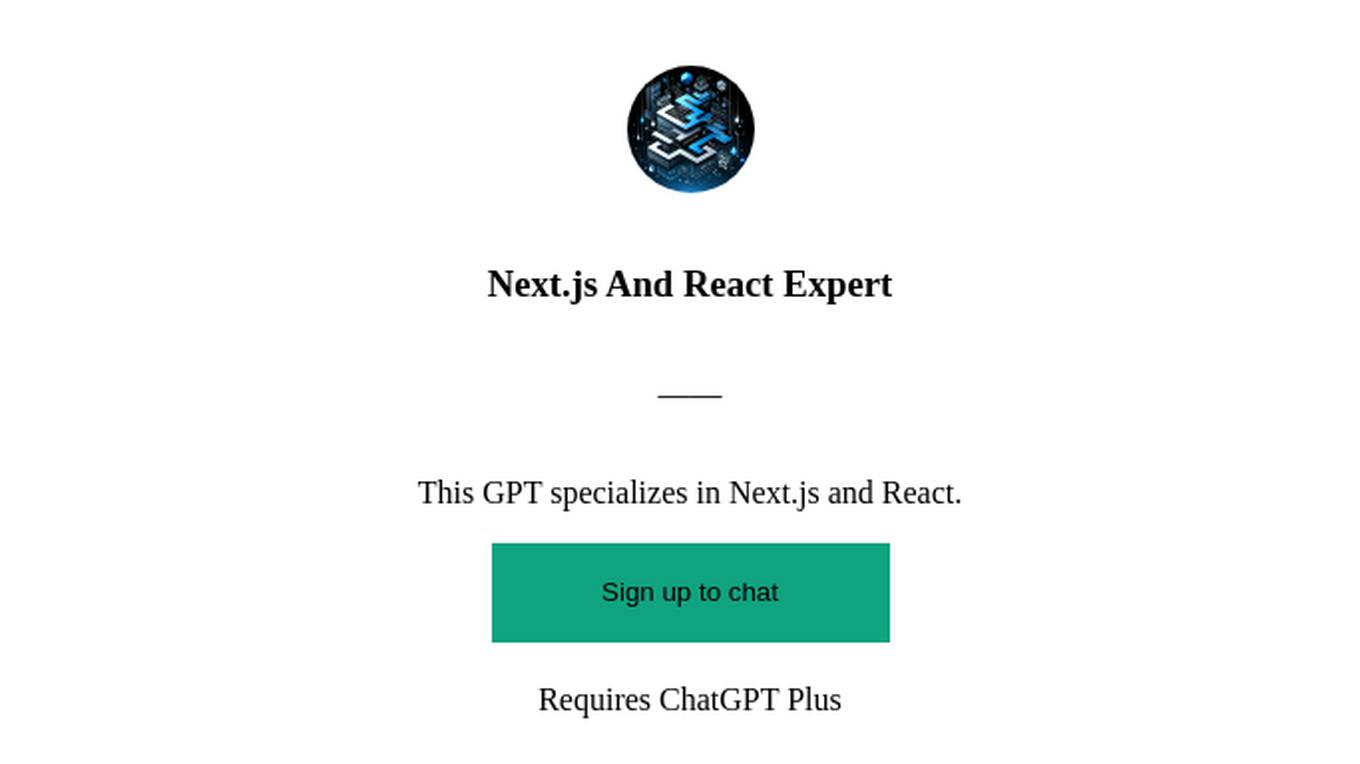Best AI tools for< Create Frontend >
20 - AI tool Sites
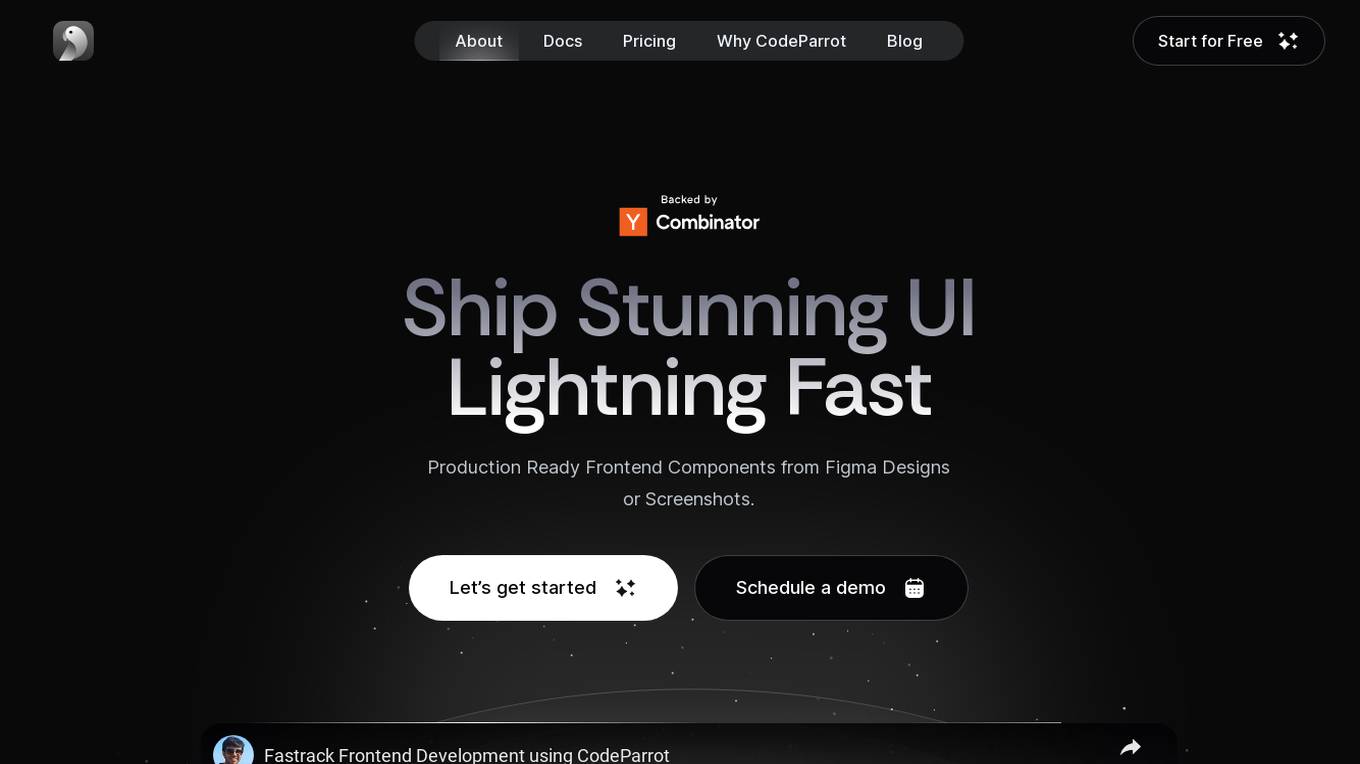
CodeParrot
CodeParrot is an AI tool designed to speed up frontend development tasks by generating production-ready frontend components from Figma design files using Large Language Models. It helps developers reduce UI development time, improve code quality, and focus on more creative tasks. CodeParrot offers customization options, support for frameworks like React, Vue, and Angular, and integrates seamlessly into various workflows, making it a must-have tool for developers looking to enhance their frontend development process.

BugFree.ai
BugFree.ai is an AI-powered platform designed to help users practice system design and behavior interviews, similar to Leetcode. The platform offers a range of features to assist users in preparing for technical interviews, including mock interviews, real-time feedback, and personalized study plans. With BugFree.ai, users can improve their problem-solving skills and gain confidence in tackling complex interview questions.

AIComponent.dev
AIComponent.dev is an AI-powered component generator that allows users to create UI components quickly and easily. The platform enables users to engage in conversation, design stunning components, and develop code seamlessly in one place. By describing their desired component in a few words, users can generate product cards, contact forms, navigation menus, and more with the assistance of AI technology. AIComponent.dev aims to streamline the component creation process and enhance the efficiency of UI development.
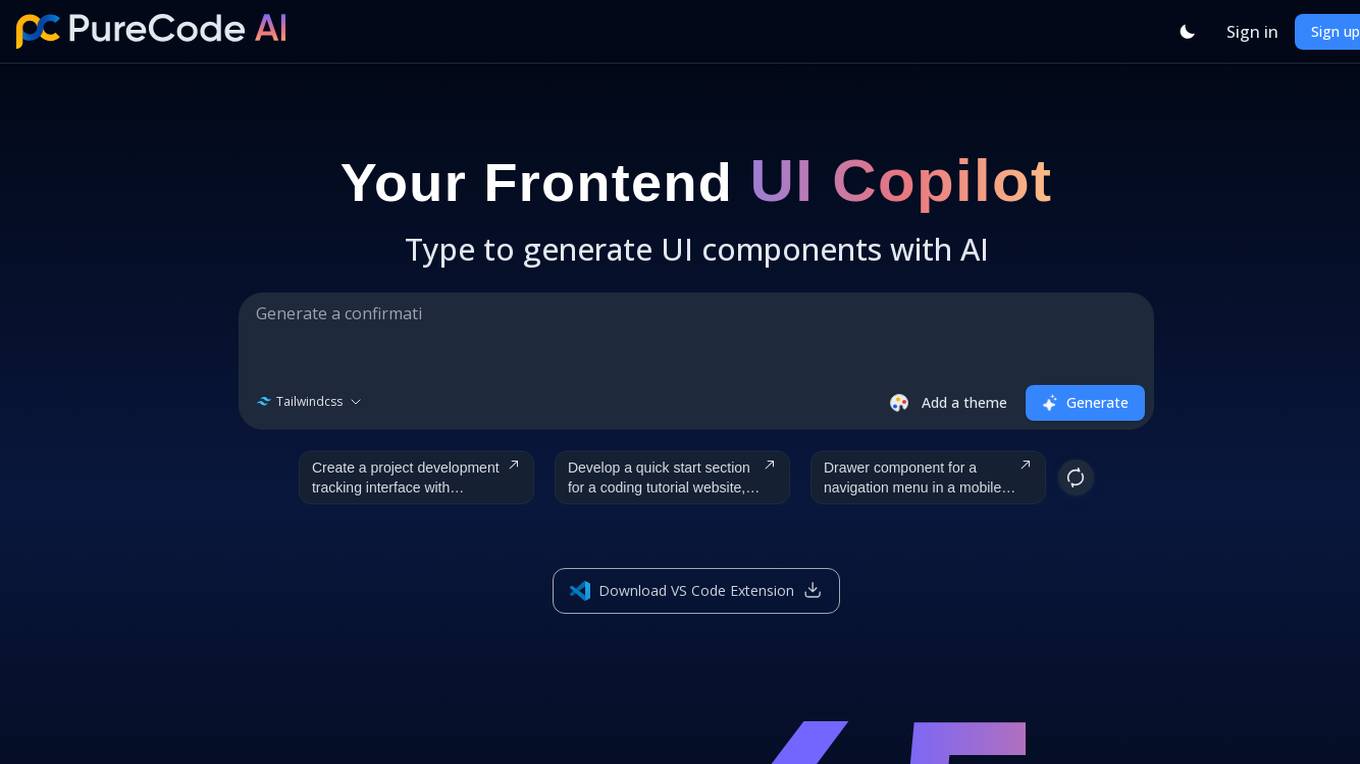
PureCode AI
PureCode AI is an innovative tool that leverages generative AI to assist developers in quickly generating UI components and code snippets for various web development projects. With a focus on streamlining front-end development workflows, PureCode AI offers features such as generating components from text descriptions, creating themes, updating generations efficiently, and providing a VS Code extension for seamless integration. The tool aims to save developers time and effort by automating the process of creating production-ready components across different frameworks like Tailwind CSS, MaterialUI, and plain CSS.
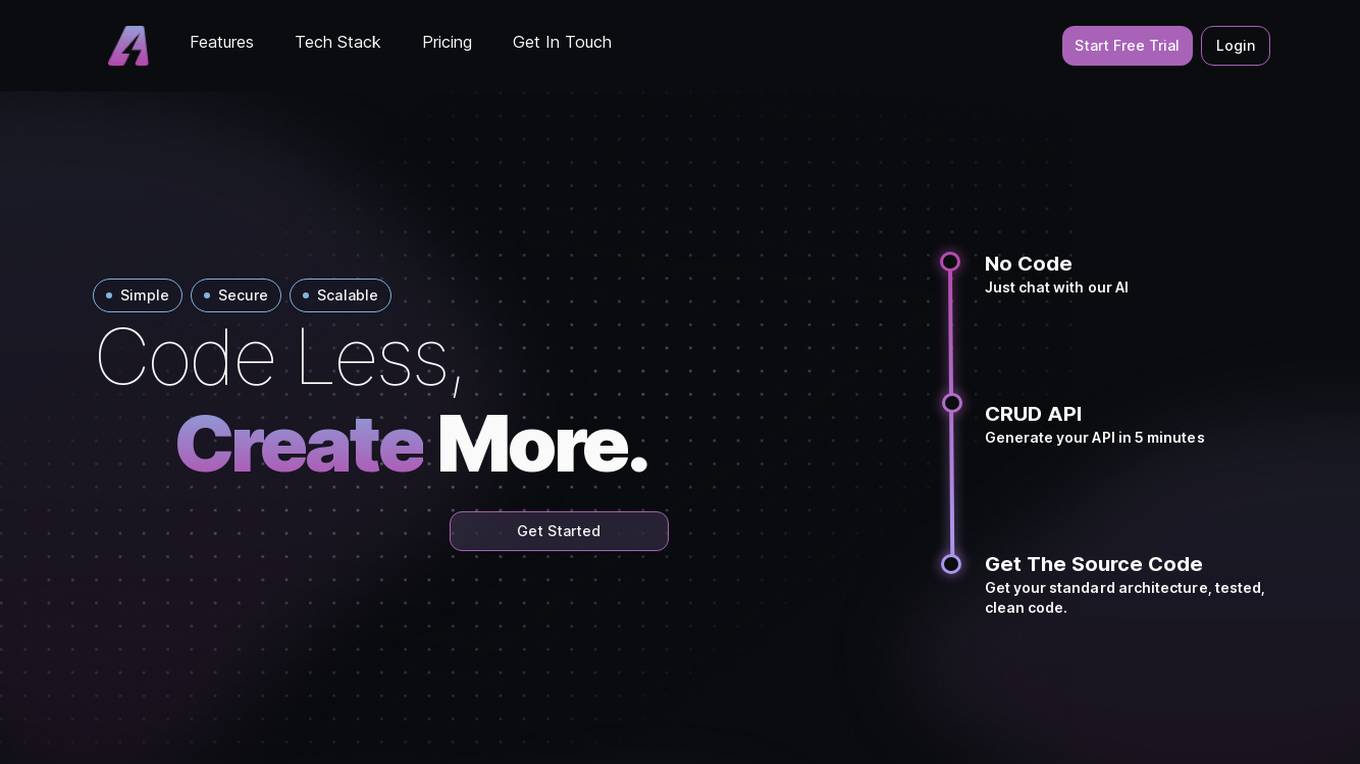
AppAsap
AppAsap is an AI-driven application development platform that allows users to create mobile apps effortlessly by simply chatting with the AI. The platform offers a range of features including database visualization, API playground, admin CMS, frontend builder, and more. It is designed to be simple, secure, and scalable, with built-in GDPR compliance and robust encryption. Users can generate APIs in minutes, access clean source code, and benefit from seamless visual customization. AppAsap is built with Express.js, React, Prisma, Typescript, RDS, and ECS, ensuring high-quality performance and reliability. The platform offers flexible pricing options to suit different needs, with a free trial available. Get in touch with the support team via email or Discord for assistance and start creating your app today.
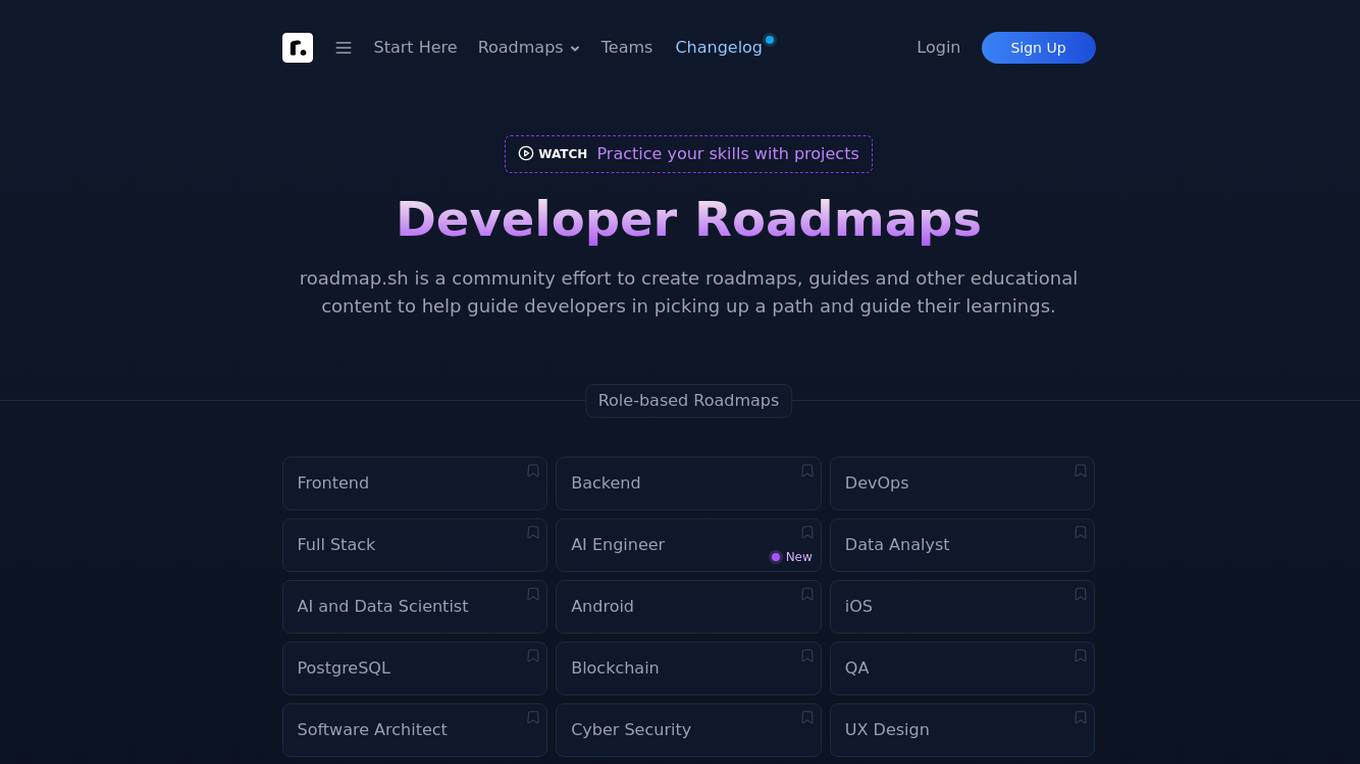
Developer Roadmaps
Developer Roadmaps (roadmap.sh) is a community-driven platform offering official roadmaps, guides, projects, best practices, questions, and videos to assist developers in skill development and career growth. It provides role-based and skill-based roadmaps covering various technologies and domains. The platform is actively maintained and continuously updated to enhance the learning experience for developers worldwide.
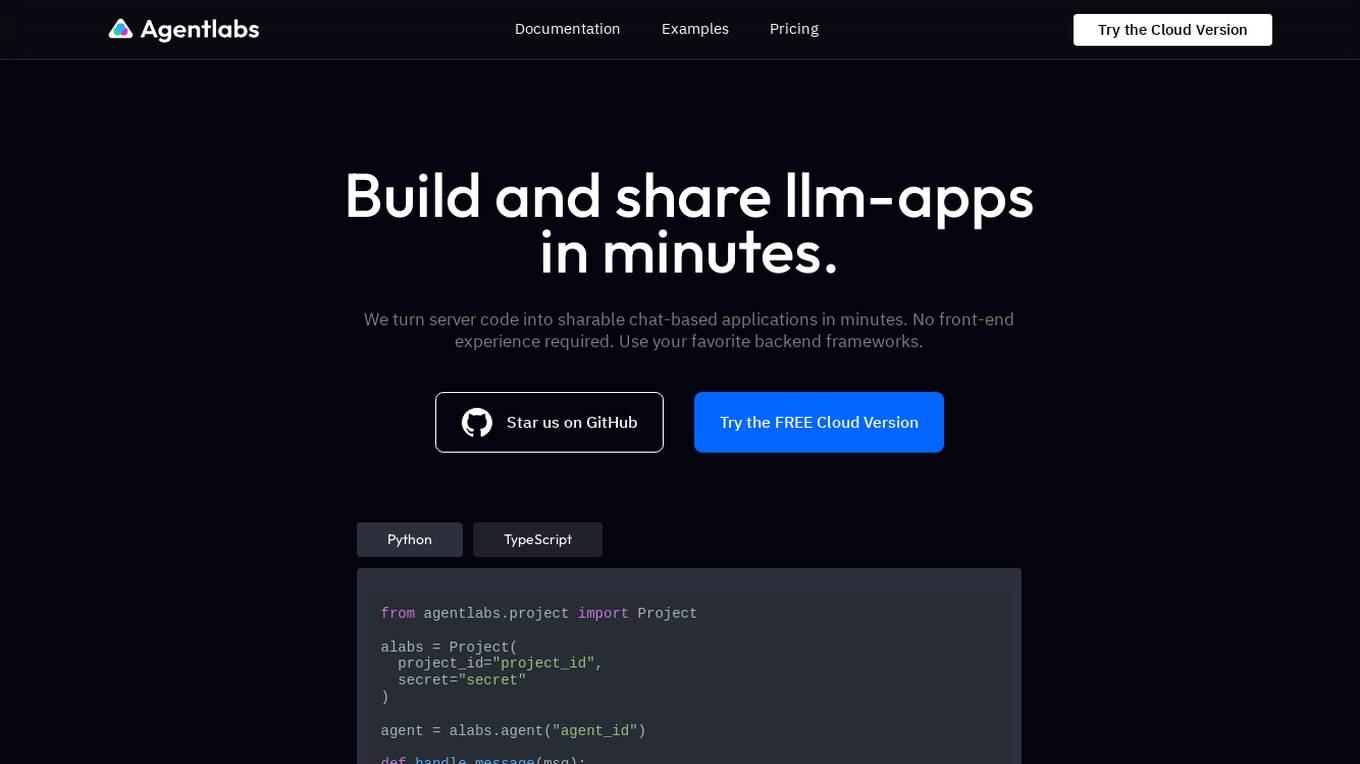
AgentLabs
AgentLabs is a frontend-as-a-service platform that allows developers to build and share AI-powered chat-based applications in minutes, without any front-end experience. It provides a range of features such as real-time and asynchronous communication, background task management, backend agnosticism, and support for Markdown, files, and more.
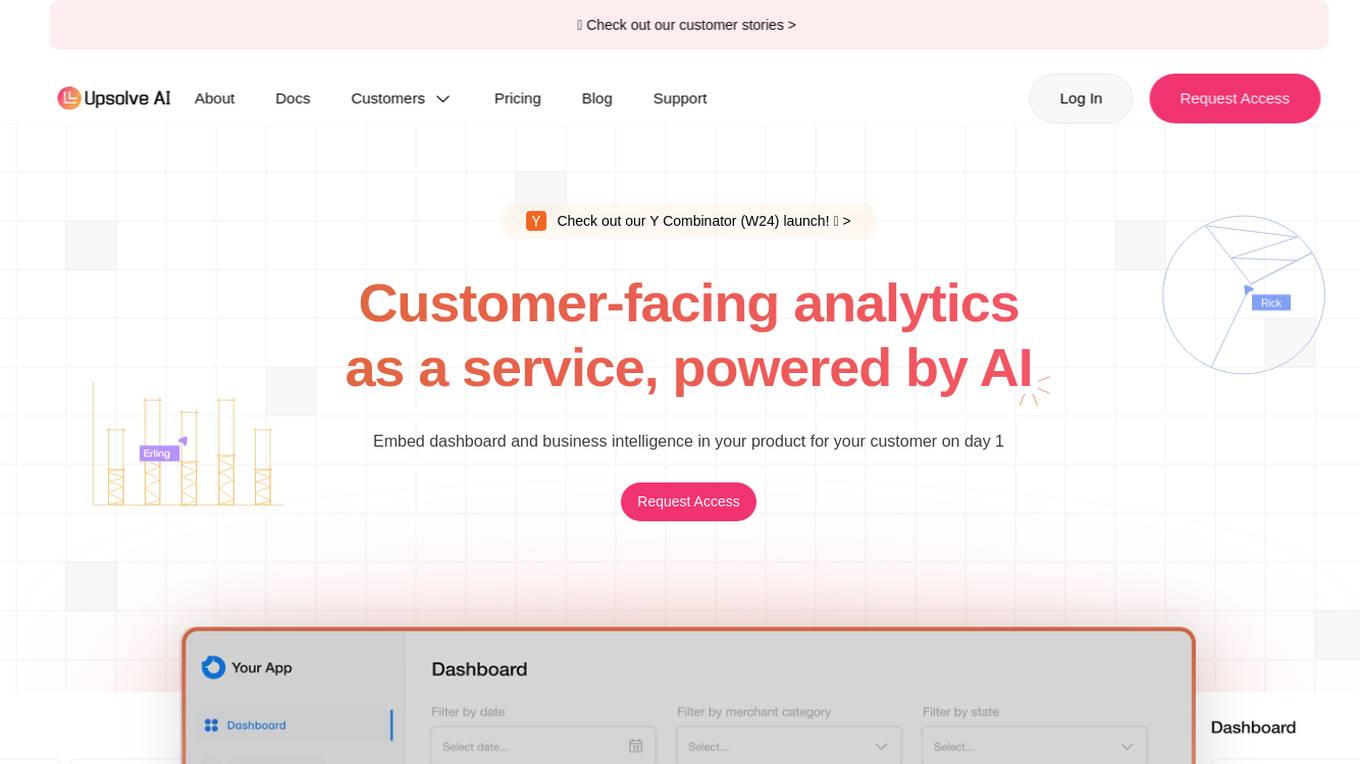
Upsolve AI
Upsolve AI is a customer-facing analytics service powered by AI that allows businesses to embed dashboard and business intelligence in their products for customers. It manages customer analytics, empowers users with product data insights, and provides out-of-the-box connections to popular databases. With features like building interactive analytics dashboards, creating custom charts, and offering self-service customization, Upsolve AI aims to help businesses make data-driven decisions and communicate values to stakeholders. The platform also offers easy deployment, theme customization, and AI-powered chart exploration for enhanced user experience.
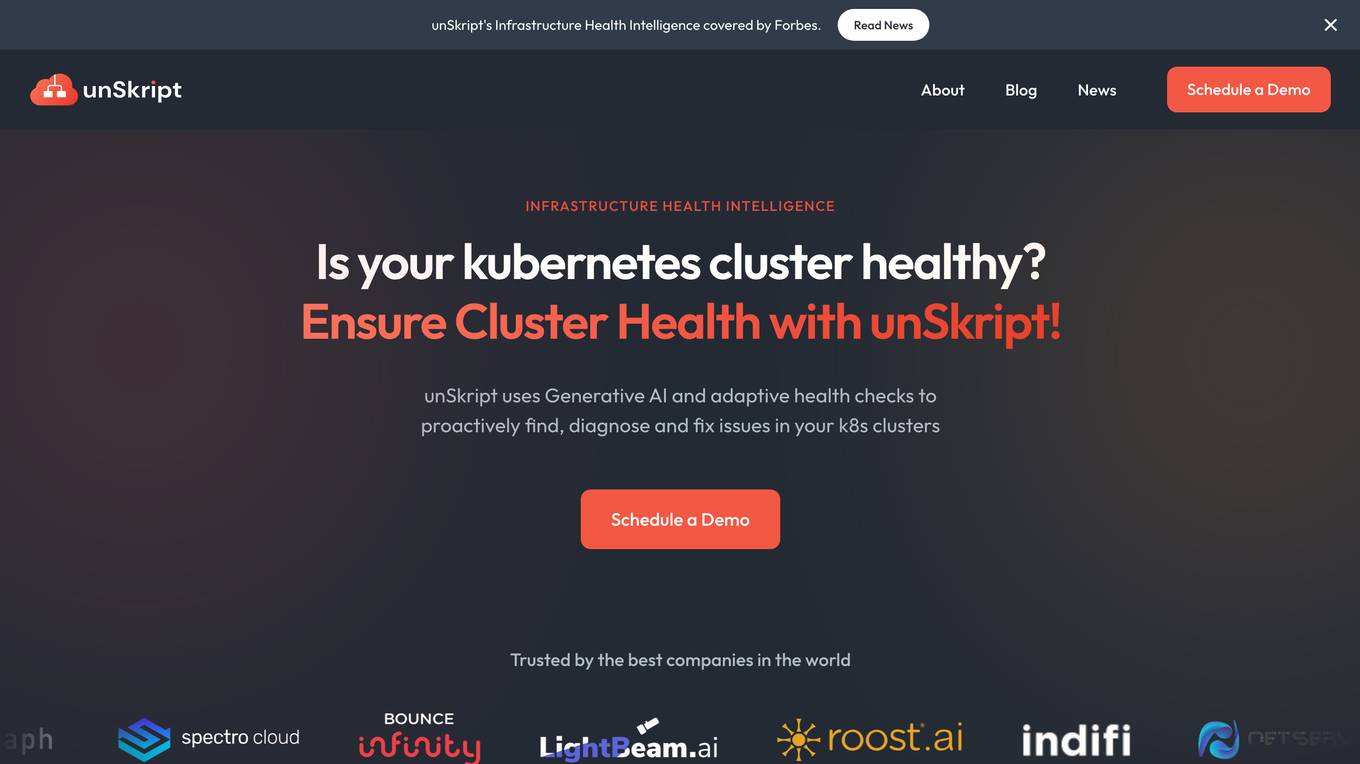
Framer
Framer is a design tool used for creating interactive prototypes and designs. It allows users to visually design interfaces, interactions, and animations. With Framer, designers and developers can collaborate seamlessly to bring their ideas to life. The tool provides a range of features to streamline the design process and enhance creativity.
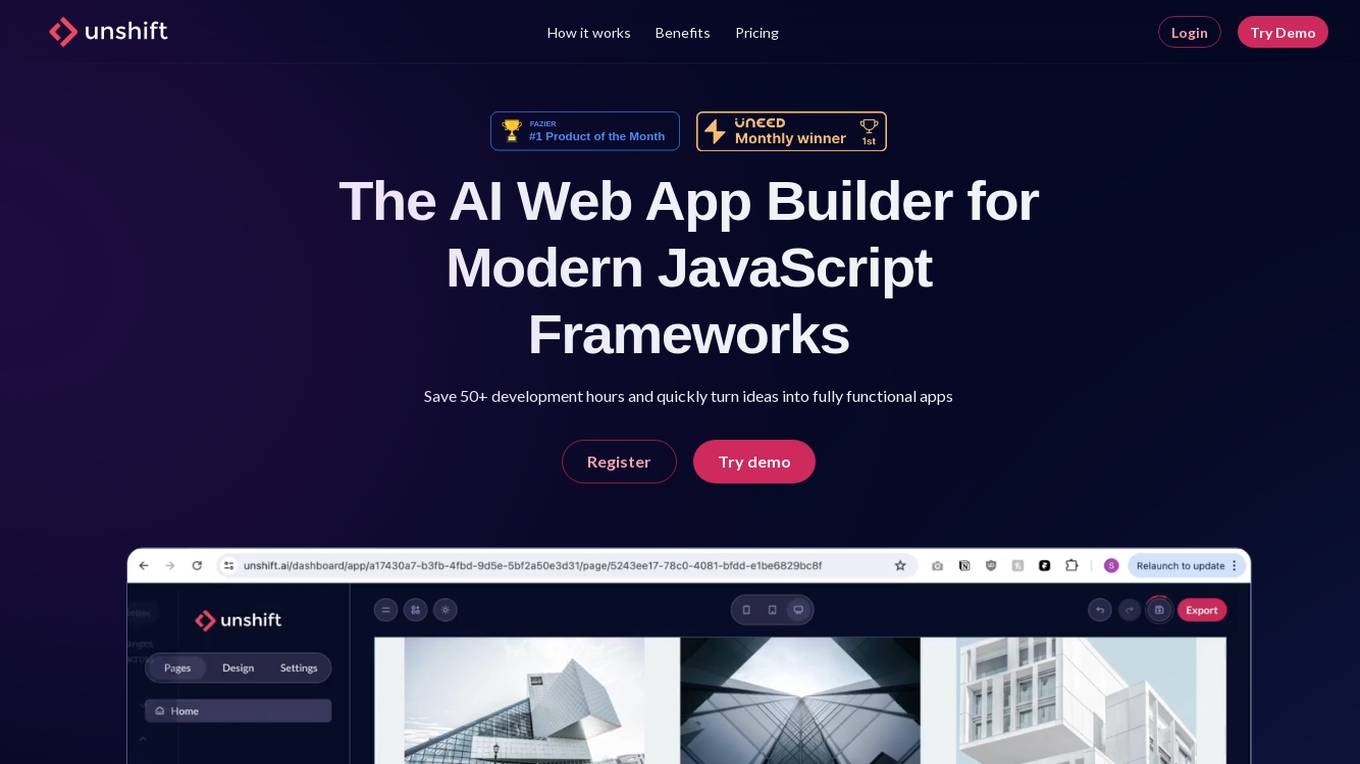
The Web App Builder
The Web App Builder by Unshift AI is an AI-powered platform designed to help users quickly and efficiently create fully functional web applications using modern JavaScript frameworks. With features like an advanced editor, support for various frameworks, and access to professionally written code, the platform streamlines the app development process and saves developers time. Users can easily customize design elements, manage content, and export their apps to different frameworks. The platform also offers AI-generated content, extensive component libraries, and a customizable design system to enhance app development. Overall, The Web App Builder is a comprehensive tool for building web applications with ease and efficiency.
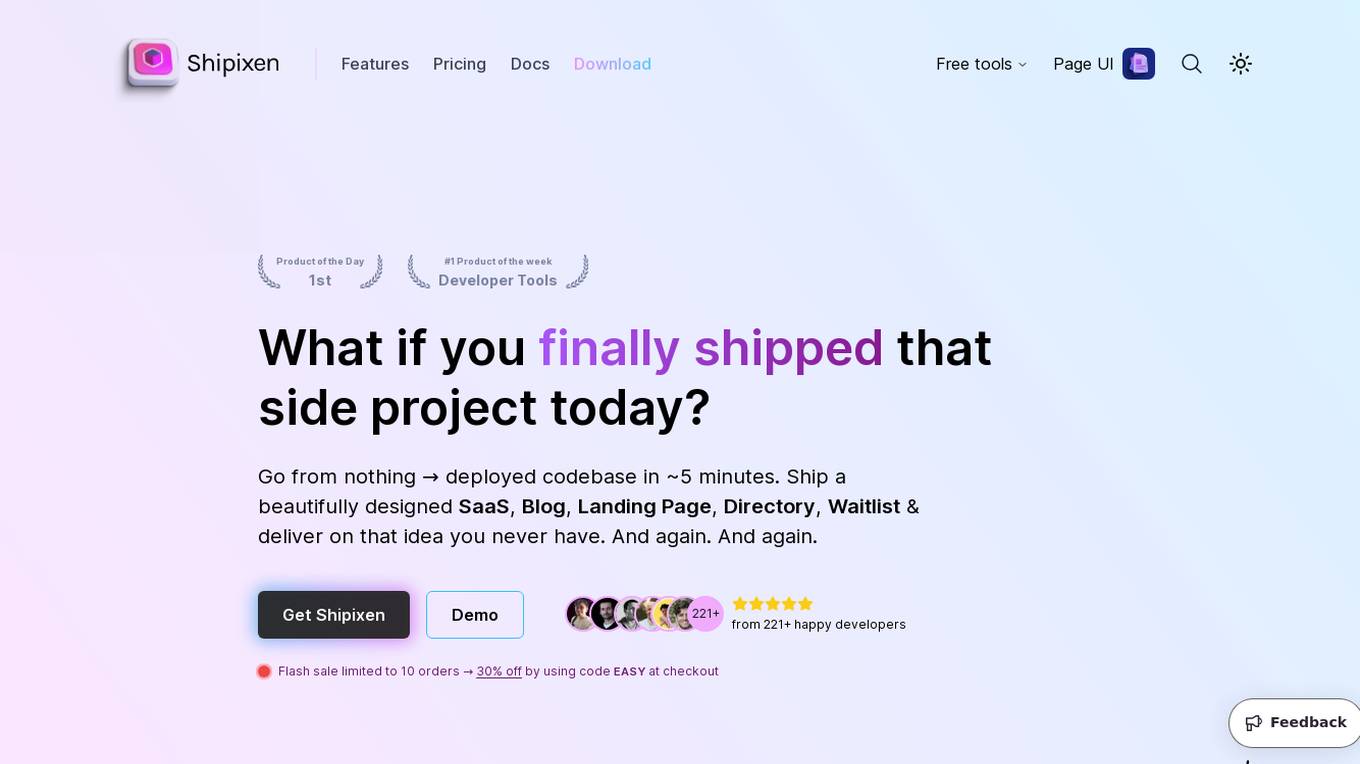
Shipixen
Shipixen is an AI-powered tool that allows users to generate custom Next.js codebases with an MDX blog, TypeScript, and Shadcn UI in minutes. It provides a seamless experience for developers to create beautifully designed SaaS, blogs, landing pages, directories, and more without the hassle of manual setup. Shipixen offers a wide range of features, themes, and components to streamline the web development process and empower users to focus on building rather than configuring. With AI content generation capabilities, customizable branding, and easy deployment options, Shipixen is a valuable tool for both beginners and experienced developers.

Tailwind Gennie
Tailwind Gennie is an AI-powered tool designed to assist web developers and designers in generating user interfaces using the popular Tailwind CSS framework. By leveraging artificial intelligence, Tailwind Gennie streamlines the UI design process by automatically creating responsive and customizable components based on user preferences and design inputs. With its intuitive interface and powerful algorithms, Tailwind Gennie empowers users to create visually appealing and functional UI designs in a fraction of the time it would take manually.
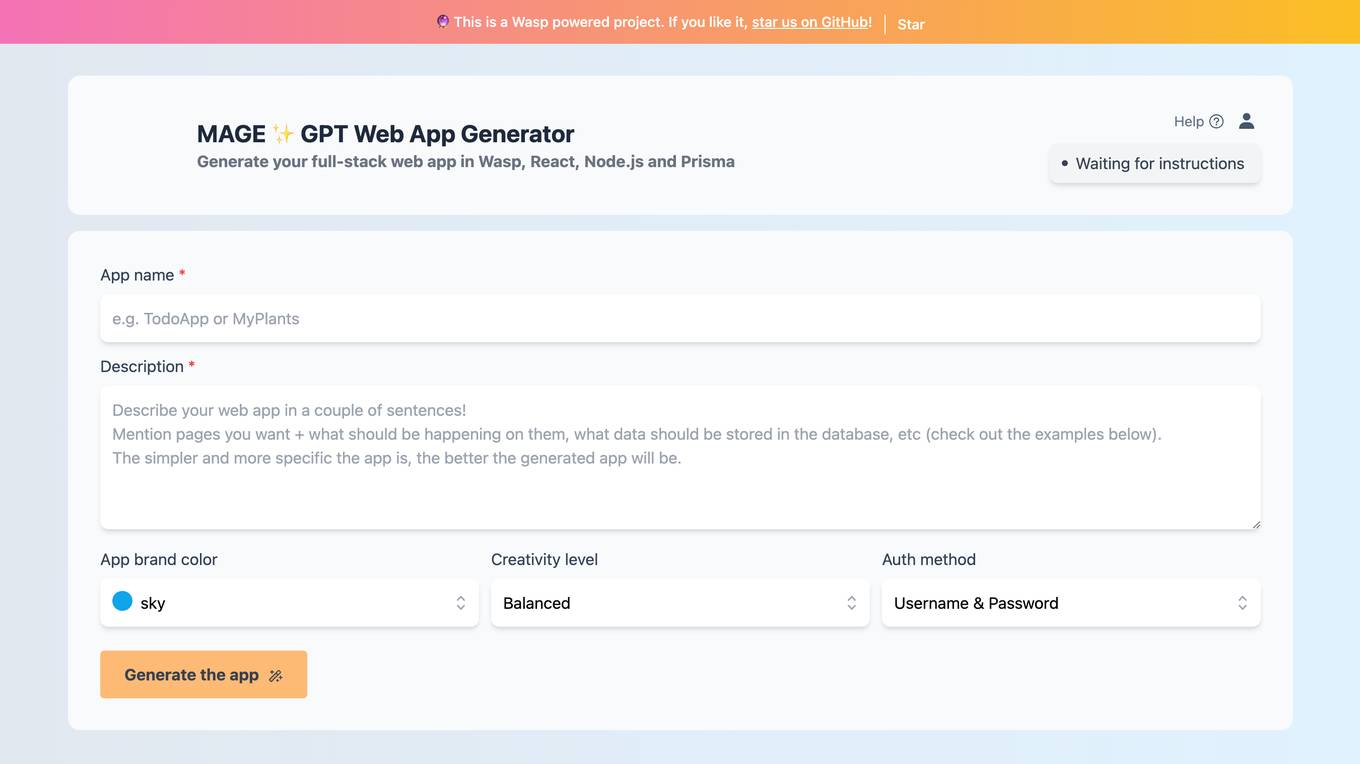
MAGE - GPT Web App Generator
MAGE - GPT Web App Generator is an AI-powered tool that allows users to generate full-stack web applications using technologies like Wasp, React, Node.js, and Prisma. Users can create various types of apps such as todo lists, plant trackers, and blogging platforms with ease. The tool provides a user-friendly interface for designing and deploying web applications quickly and efficiently.
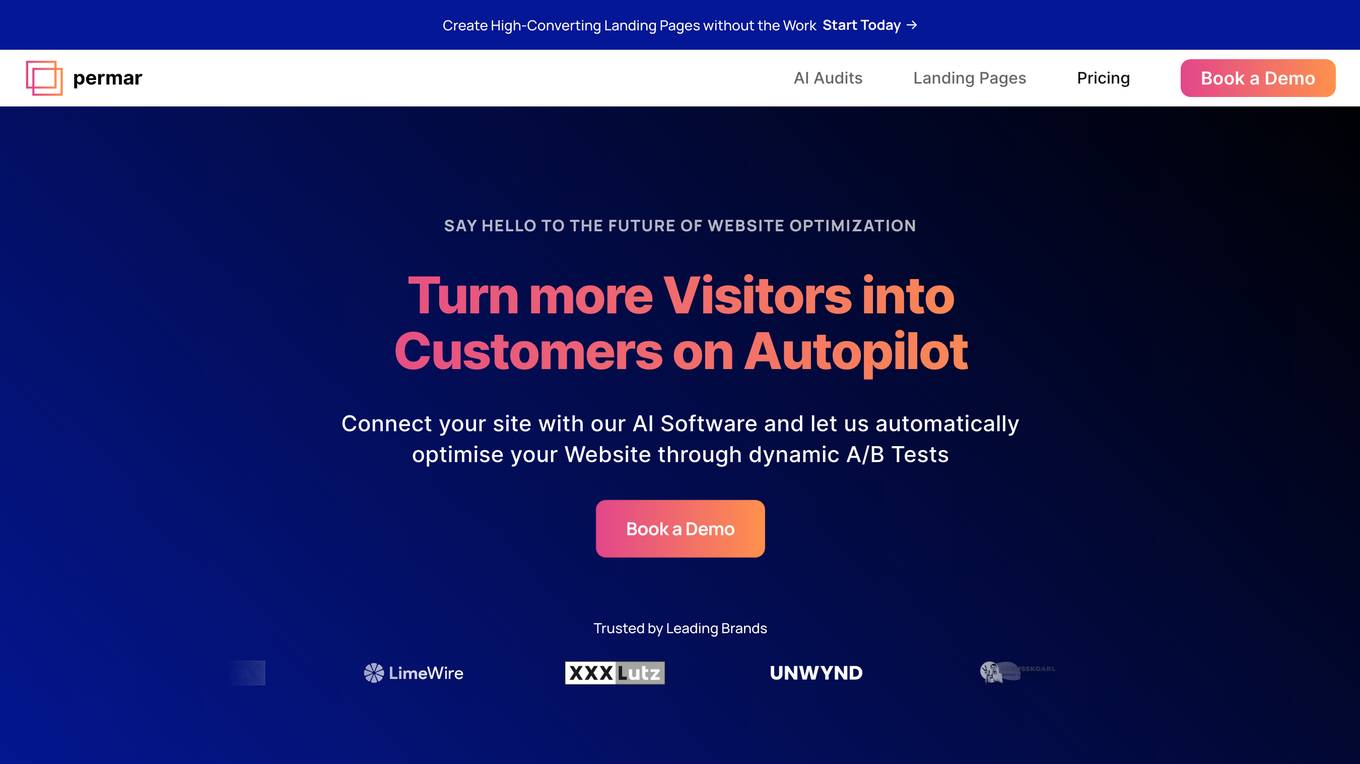
Permar
Permar is an AI-powered website optimization tool that helps businesses increase their conversion rates. It uses reinforcement learning techniques to dynamically adapt website optimization, resulting in an average uplift in conversion rates of 10-12% compared to static A/B tests. Permar also offers a complete toolkit of features to help businesses create high-converting landing pages, including dynamic A/B testing, real-time optimization, and growth experiment ideas.
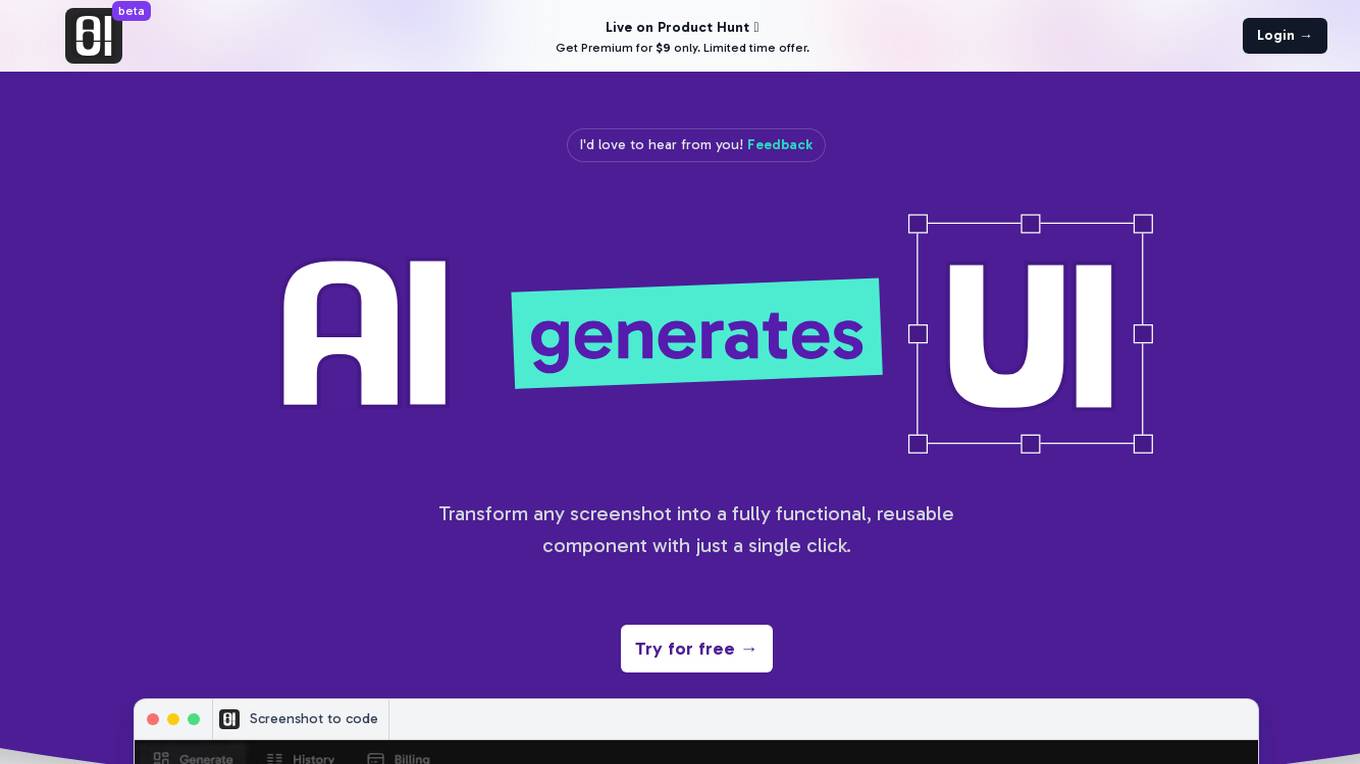
AIUI.me
AIUI.me is an AI tool that allows users to transform any screenshot into fully functional, reusable React.js and TailwindCSS components with just a single click. It simplifies the process of converting design ideas into code, saving time and effort for UI/UX designers, developers, freelancers, and small teams. The tool offers instant conversion, customization options, and efficient project management capabilities, making it a valuable asset for anyone looking to streamline their workflow and enhance productivity.
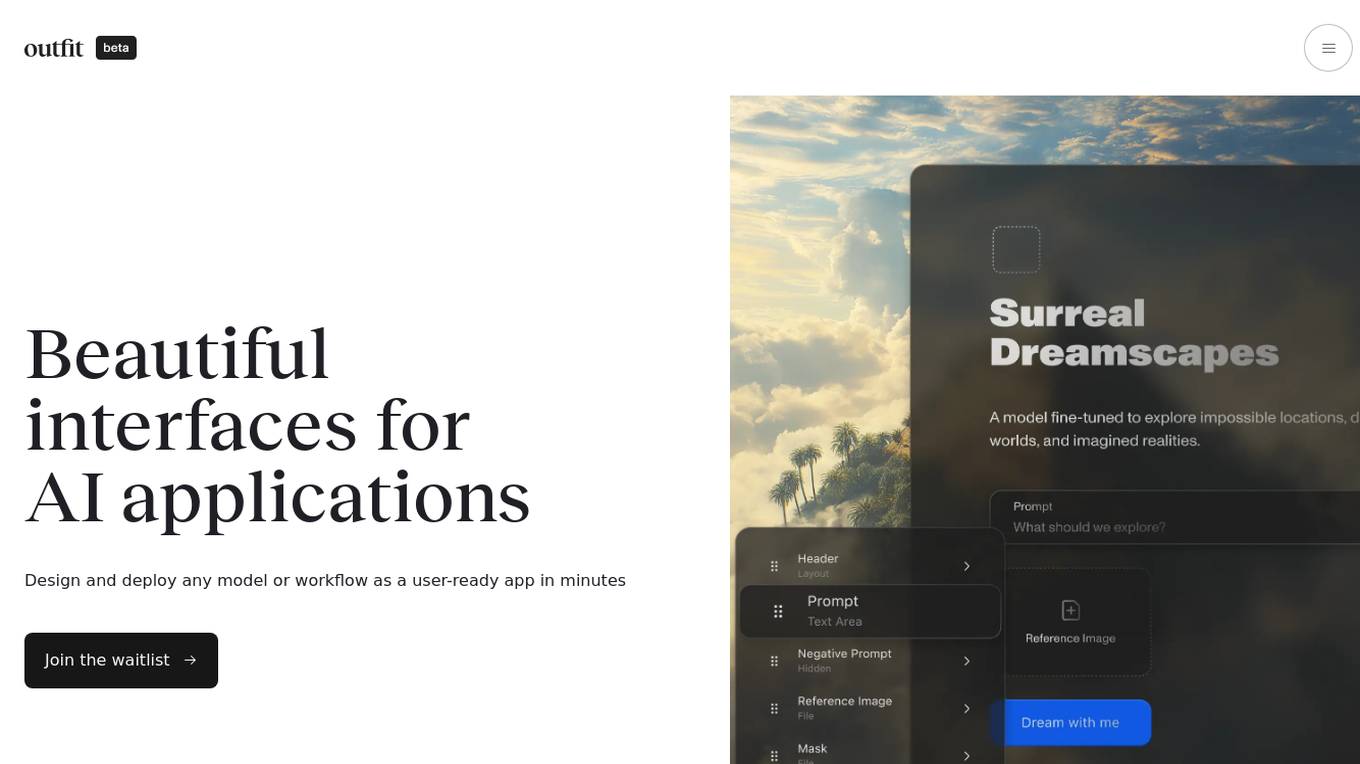
Outfit AI
Outfit AI is an AI tool that enables users to design and deploy AI models or workflows as user-ready applications in minutes. It allows users to create custom user interfaces for their AI-powered apps by dropping in an API key from Replicate or Hugging Face. With Outfit AI, users can have creative control over the design of their apps, build complex workflows without any code, and optimize prompts for better performance. The tool aims to help users launch their models faster, save time, and enhance their AI applications with a built-in product copilot.
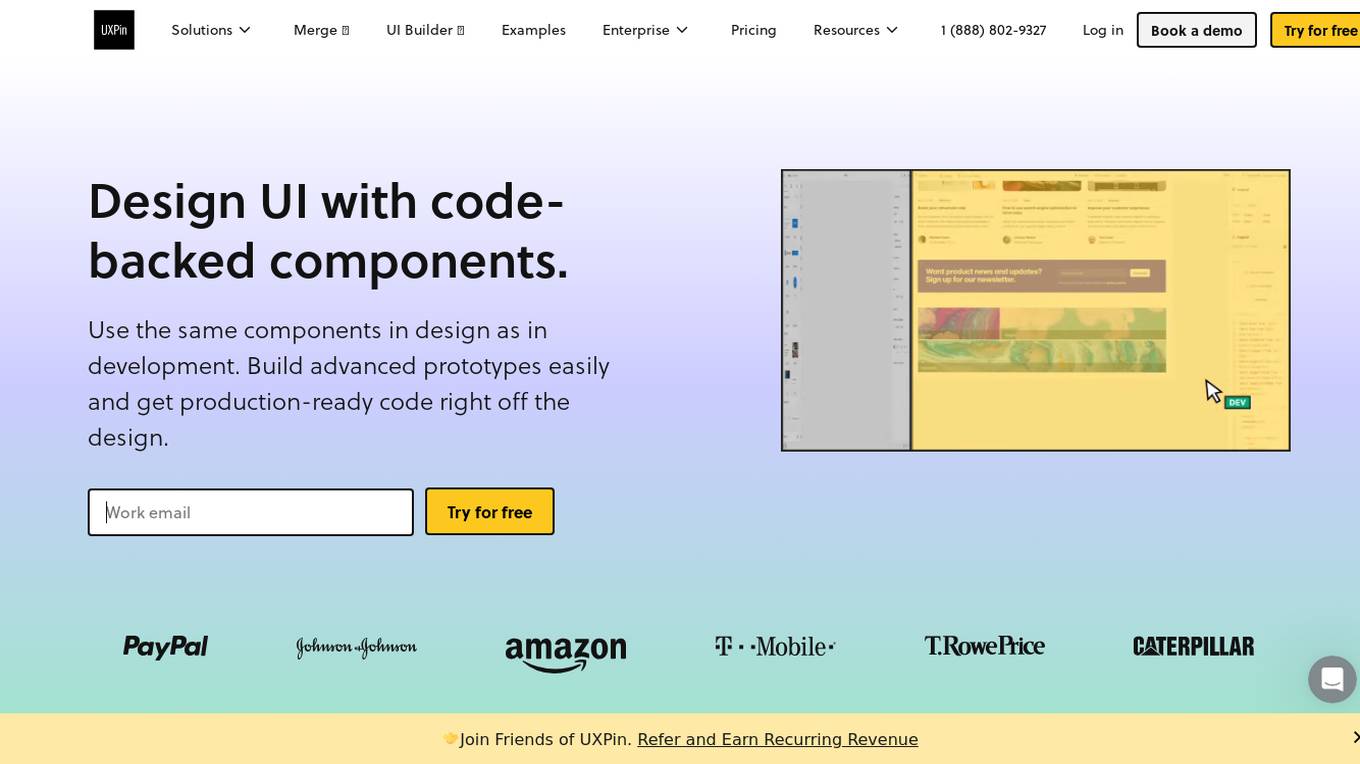
UXPin
UXPin is an AI-powered UX/UI and prototyping tool designed for designers and developers to streamline the design process. It allows users to design UI, create prototypes, manage design systems, and merge code seamlessly. With advanced features like AI-powered design, code-backed components, and integration with popular libraries, UXPin enhances collaboration between designers and developers, resulting in faster product development cycles and improved design consistency.
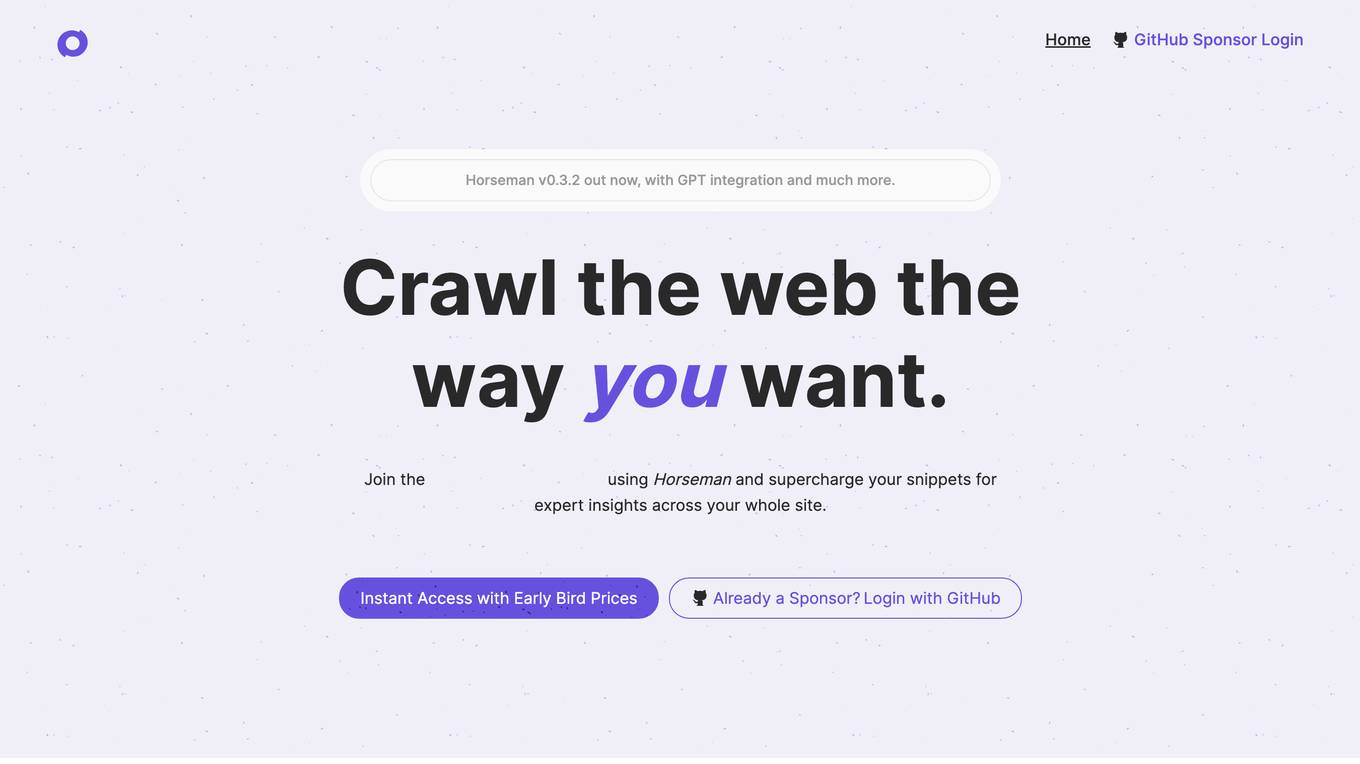
Horseman
Horseman is an AI-powered crawling companion that allows users to crawl the web in a highly configurable manner. With features like GPT integration, snippet creation with AI assistance, and insights generation, Horseman caters to frontend developers, performance analysts, digital agencies, accessibility experts, SEO specialists, and JavaScript engineers. The tool supports Windows, Mac OS, and Linux, offering a vast library of snippets for various tasks like sentiment analysis, content extraction, and more. Horseman empowers users to automate website interactions and extract valuable information effortlessly.
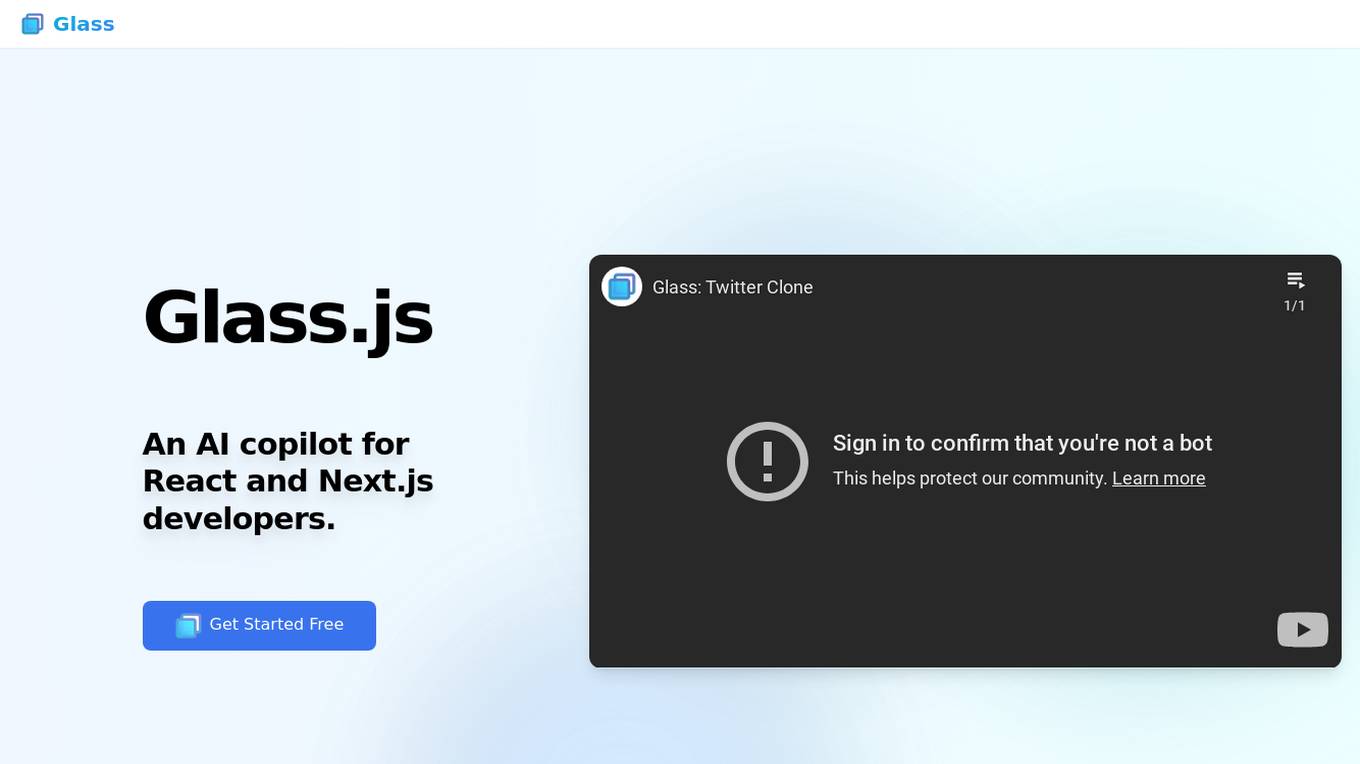
Glass
Glass is an AI copilot designed for React and Next.js developers. It allows users to edit code straight from the browser using AI technology. Glass's AI capabilities include creating components, modifying props, and generating Tailwind CSS. The tool helps developers visualize component structures and easily navigate to source code. Glass is precise and efficient, making React coding faster and more streamlined. It is currently in open beta for startups, with ongoing improvements to its AI functionality.
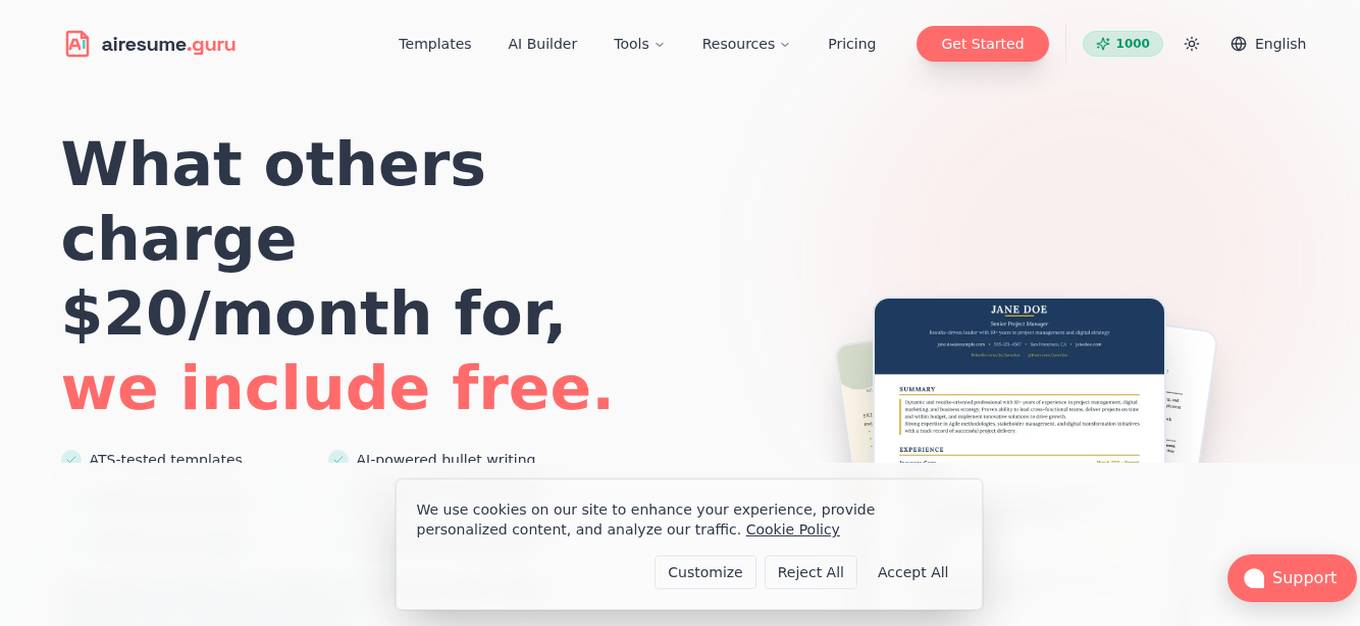
AI ResumeGuru
AI ResumeGuru is a professional resume building tool powered by artificial intelligence. It offers a range of features such as AI-powered bullet writing, real-time ATS scoring, PDF export without watermarks, portfolio site creation, and the ability to import from PDF or LinkedIn. The tool allows users to create a free account and upgrade only if they need unlimited access. AI ResumeGuru helps users generate achievement-driven bullet points by chatting naturally about their experience, eliminating the need to fill out forms. It also provides an AI assistant to optimize resumes for specific job roles and offers free online portfolio creation with no coding required.
1 - Open Source AI Tools
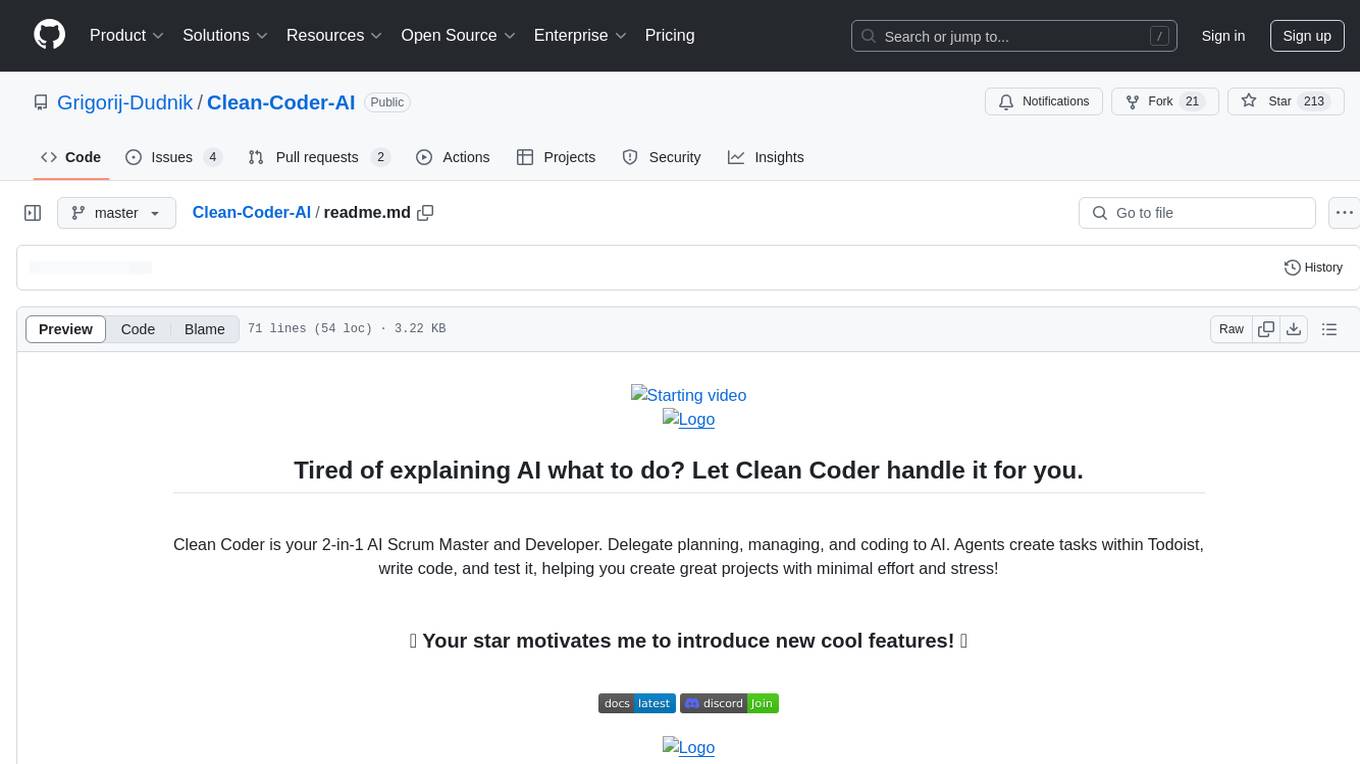
Clean-Coder-AI
Clean Coder is an AI tool that serves as a 2-in-1 Scrum Master and Developer. It helps users delegate planning, managing, and coding tasks to AI agents. These agents create tasks within Todoist, write code, and test it, enabling users to work on projects with minimal effort and stress. The tool offers features like project supervision, task execution by programming agents, frontend feedback, automatic file linting, file researcher agent, and sensitive files protection. Users can interact with Clean Coder through speech and benefit from advanced techniques for intelligent task execution.
20 - OpenAI Gpts

Frontend Builder
Generates complete, secure, and efficient frontend code for website templates.
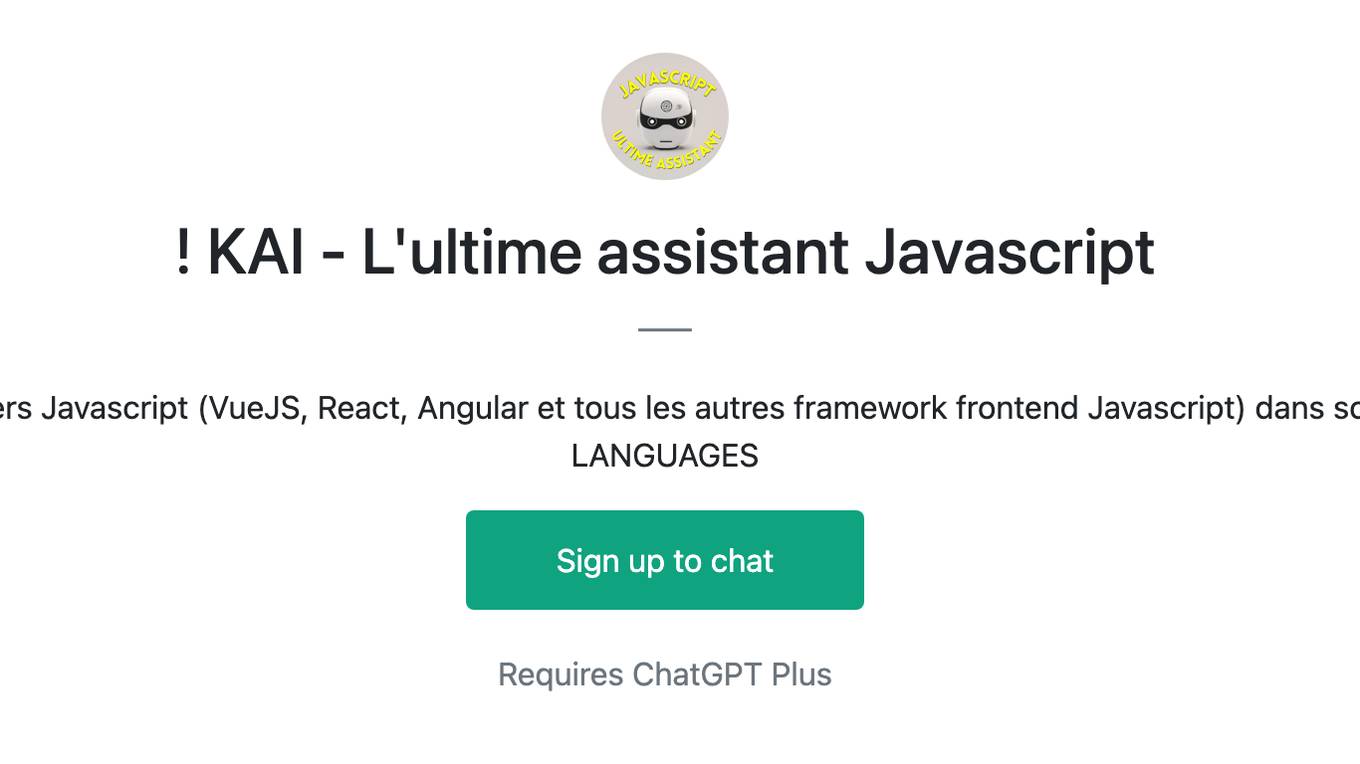
! KAI - L'ultime assistant Javascript
KAI, votre assistant ultime dédié à tous l'univers Javascript (VueJS, React, Angular et tous les autres framework frontend Javascript) dans son ensemble, sympathique et serviable. ALL LANGUAGES
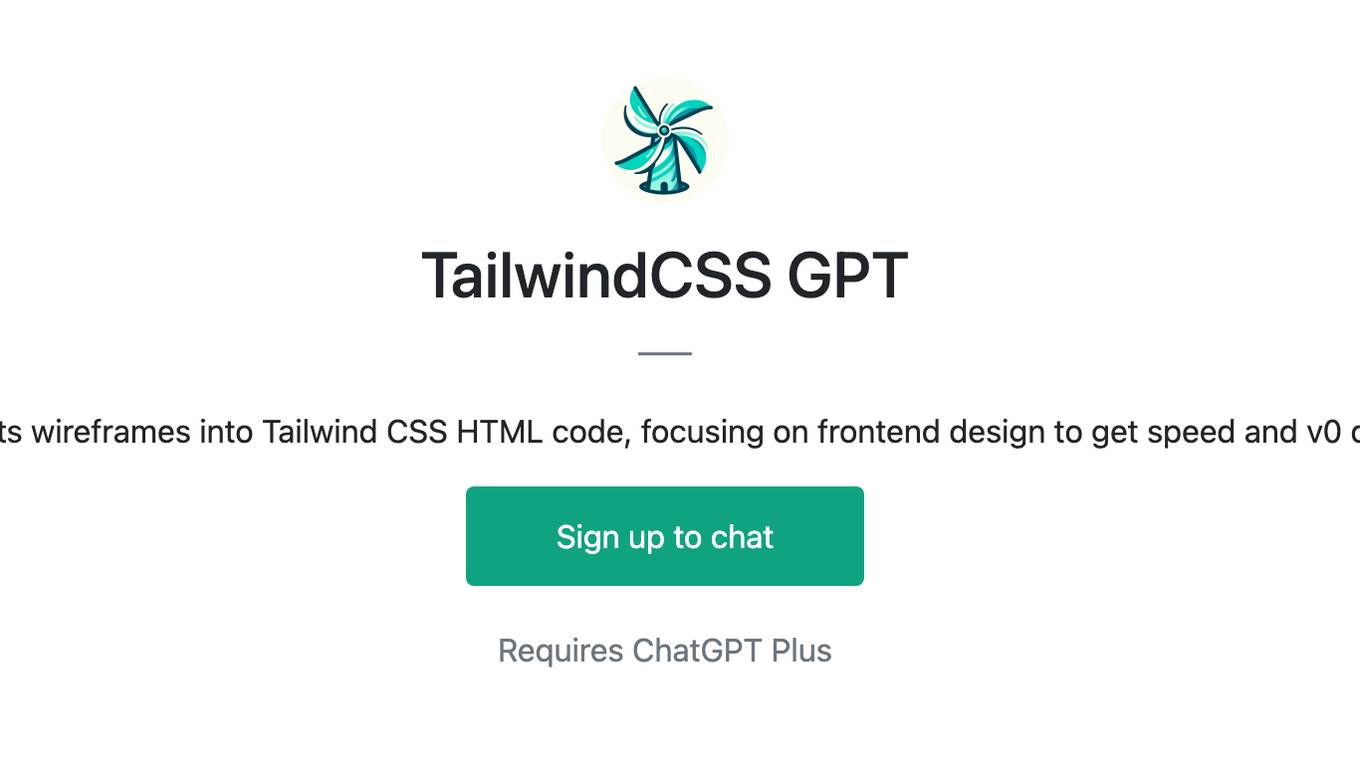
TailwindCSS GPT
Converts wireframes into Tailwind CSS HTML code, focusing on frontend design to get speed and v0 quick.
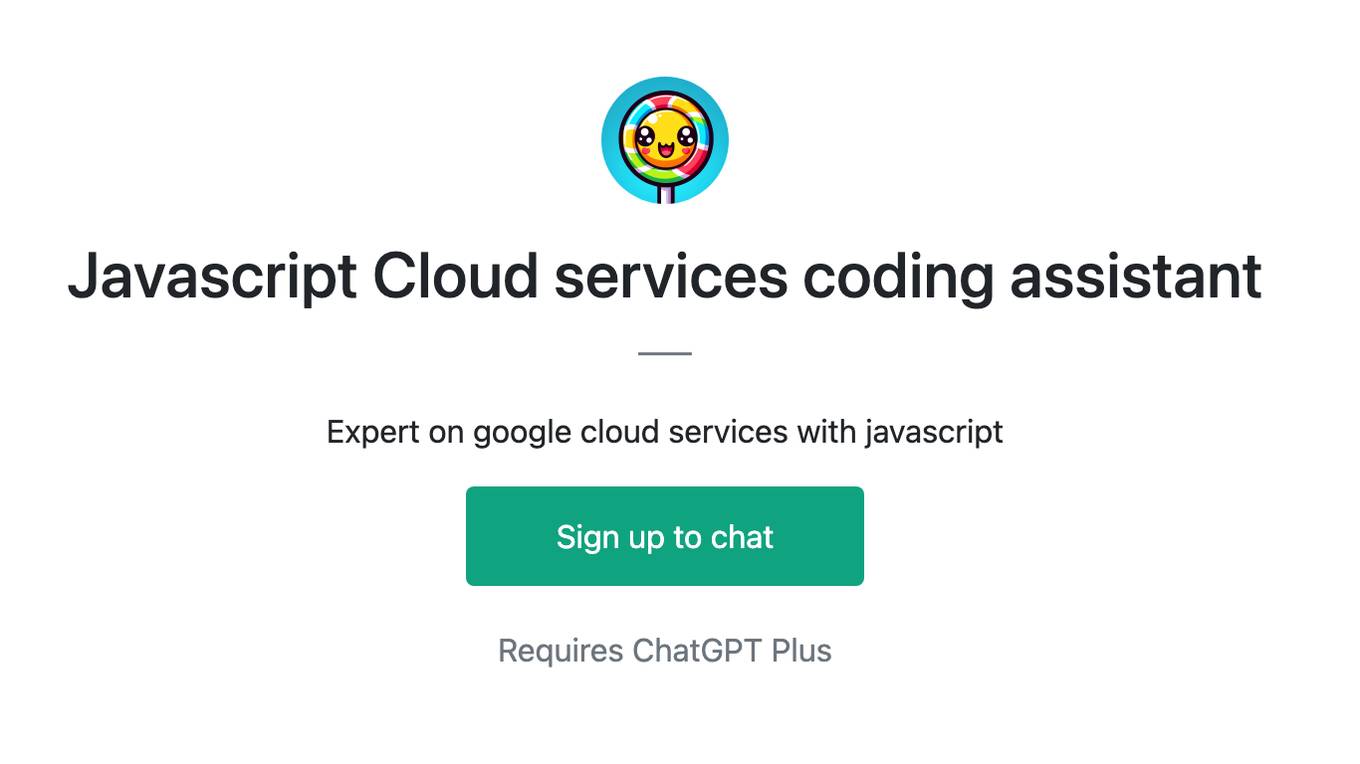
Javascript Cloud services coding assistant
Expert on google cloud services with javascript
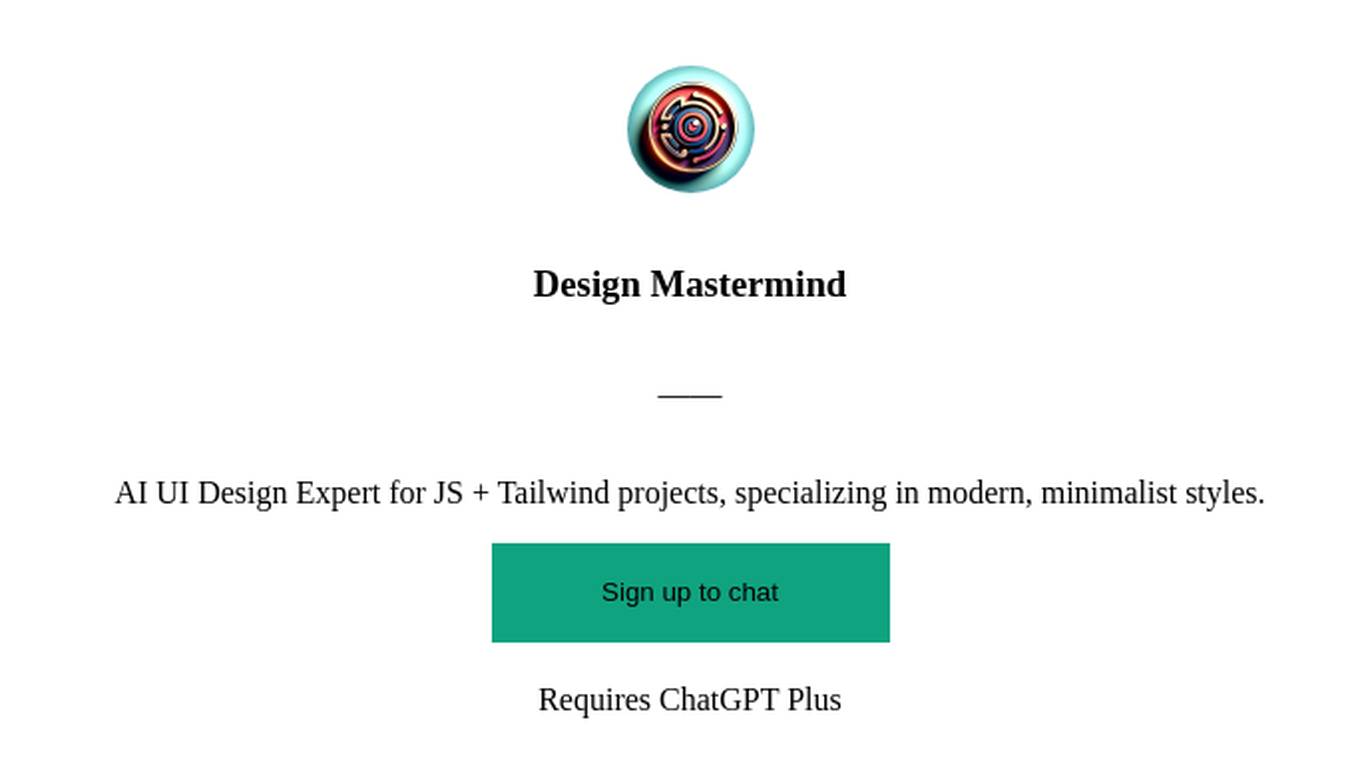
Design Mastermind
AI UI Design Expert for JS + Tailwind projects, specializing in modern, minimalist styles.

